- Overview
- Trip Outline
- Trip Includes
- Trip Excludes
- Gallery
- Reviews
- Booking
- FAQ
21 Days High school, College University student’s study tour of Uganda.
NOTE: 21 Days Study tour Price.
A: Group of26 to 78 students: —Each student Pays: US $3,895
Note: Single supplement occupancy each person pays: US $895- (US dollars)
what is single occupancy supplement? Is a traveler who joins a group safari and wish not to share a room with anyone in the group and wants a room for himself or herself. so, he/ she must pay single supplement fee on top of the group safari price.
Study Tour Duration: 20 nights,21 days.(3 weeks)
Type of accommodation: 2.5 star mid range (shared Accommodation)
Minimum number of students on tour: 18 students on tour (accompanied one Teacher).
Maximum number of students on tour:78 students.(accompanied by their two professors)
Type of safari tour: High school, Collage, University study tour
Location of tour: African Continent.
Country to visit: Uganda,
Uganda Visa: us$50.
Tour Starts on a : Friday
(A) Study Tour Price Includes.
-
All accommodation as mentioned in the itinerary
-
Meals as mentioned in itinerary
-
Ground transportation
-
Bottled drinking water
-
All study tour places as mentioned in itinerary
-
Transport fuel
-
Study Tour guide
-
Airport pick-up and drop-off
-
All study sites mentioned in the Itinerary.
(B) Study Tour Price Excludes
-
-
inbound flight to Uganda
-
-
Out-bound flight out of Uganda
-
Gorilla trekking permit. ( US $700 per person).
-
Chimpanzee trekking permit. (US $250 Per person)
-
Vaccinations for COVID 19, Yellow Fever, and Typhoid Fever. It is important to carry Malaria pills
-
Travel insurance
-
Medical insurance
-
visa to Uganda $50 per person
-
Soft drinks, alcoholic drinks, freshly made juices
-
Daily examinations
-
Tips and gratitude
-
Insect repellants
-
Scholastic materials.
-
Extra meals
-
Hand sanitizer
-
Face masks
-
Binoculars
-
Camera
-
Body massage and spa
-
Study lecturers and professors
-
Negligence lose of Personal property.
International Flights: when booking for flights to come on this safari.
-
Kindly book flight inbound flight to Entebbe International Airport, Uganda (flying into Uganda to begin your 21-day study tour safari).
-
Outbound flight from Entebbe International Airport, Uganda (flying out of Uganda back home at the end of your 21-day study tour safari).
Things to know before you do your safari.
1. Drinks
On the 21-day study tour safari, only bottled drinking water is included in the safari price. Alcoholic drinks (gin, beer, wine), coffee, tea, hot water, freshly made juices are not included. You can pay for any drinks you order by local cash or credit card.
2. Listen to your guide
Paying attention to your guides is the most crucial thing to do on safari. The guides are experts in the environment and animal behavior and they will have the best judgement in any situation. Their job is to keep you safe so it’s imperative that you always follow their instructions.
3. Do not disturb the animals
The plains of Africa are not a zoo and the animals must not be disturbed as they roam about in their natural habitat. Never call out or wave to an animal as this will spook them. They will either run away and ruin the sighting experience for everyone, or they’ll charge at you, putting everyone’s life in serious danger.
4. Be quiet
It’s important not to make too much noise as animals scare easily. The animals are used to the sounds of the vehicles, but human noise will upset them. Mute your devices to avoid any loud beeping and if you need to talk, do so in a whisper. It’s easy to embrace an awed silence when you’re immersed in a thrilling search for wildlife. Sit back and let the beauty of the African bush take your breath away.
Don’t get too close to animals, as they are unpredictable and can move very quickly when threatened. It goes without saying that you should never try to touch or feed an animal.
5. Do not feed the animals
Don’t bring any food during a game drive. Animals have an incredible sense of smell and will be attracted by something as small as a wrapped candy.
Sodas and sweet drinks always lure stinging insects so stick to water. If you do need to eat while on safari (possibly for medical reasons), try to avoid anything with noisy packaging and inform your guide before heading off.
6. No smoking or littering
These are two big no-noes. Smoking is a fire hazard in the African bush and will pollute the natural environment and disturb the animals. Littering is also never okay. Leave no trace and dispose of all trash in designated bins. if you want to smoke, kindly ask your guide to find a good smoking area for you. But smoking in the vehicle, hotel rooms, gathered groups, and public places is not allowed.
7. Luggage and packing
Your luggage is limited to one backpack OR one duffel bag and one daypack weighing no more than 25kg. As a general rule, “If you cannot lift your own luggage, you’ve got too much stuff!” Most people make the mistake of bringing too many clothes on safari.
Please keep in mind that this is a study tour safari and luggage should not include any Samsonite style suitcases. As the wheelie / trolley bags have a solid frame, they don’t squeeze into spaces the same way a backpack or a duffel bag does. African safari vehicle trunks and light inland aircraft cargo compartments are narrow. If the frame does not fit in the cargo compartment, then there aren’t many other places to put your bag and it will inconvenience everyone else on safari. Also, by day two, the mud and stones will get into the little wheels on your wheelie bag and the novelty will be over and you’ll be carrying your suitcase from A to B. A compact and flexible waterproof duffel bag is perfect for stashing into the cargo compartment.
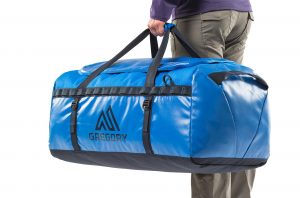 Good example of a water proof duffel bag
Good example of a water proof duffel bag
Day pack:
On your study tour safari you will generally need to take along a smaller daypack for excursions. For example, on gorilla trekking, chimpanzee tracking, hikes and game drives you will need a smaller bag, big enough to bring basic equipment like a camera, water, insect repellants, etc.
(1) What do you mean by study tour?
The International Study Tour is an educative program, designed to provide students with first-hand experience of the economic, cultural, and geopolitical drivers in regions integral to the global economy.
(2) What is the advantage of a study tour?
(a) A study tour helps students to better realize the interaction between their chosen fields of study with the rest of the world therefore helping them better appreciate their chosen field.
The Study Tour will help students to broaden their horizons to many possibilities that are not just contained in one geographical location or culture.
(b) For the students, study tours are generally eye-opening and action-packed, offering the chance to meet and mix with peers from other countries, discover new enthusiasms and, along the way, develop a stronger sense of self-confidence and independence.
(c) On a good educational tour, students experience a different culture through new eyes. … Such experiences can help students develop more compassion for people from different walks of life. It can also help them to reflect on how these issues affect the people near their home, inspiring them to work towards change.
(3) How does field trip safari help lecturers and Teachers?
School study tour trips provide children with a different level of excitement and fun. It gives them something to look forward to; in essence, field trips erase the boredom that is associated with classroom lectures.
What is international study tour?
The international study tour is an elective program, which is designed to provide the students with a first-hand experience of the economic, cultural and geopolitical drivers in regions integral to the global economy.
Skills Attained:
Note: Apart from building academic capability, study tour also aims at building life skills such as team work, communication, problem solving skills and decision making that are only obtained through life experience.
Fields/Topics of Study Tour
(1)Geomorphology
Geomorphology the study of landforms and evolution. The topic traditionally has been studied both qualitatively, which is the description of landforms, and quantitatively, which is process-based and describes forces acting on Earth’s surface to produce landforms and landform change.
(2)Ideology
An ideology is a set of beliefs or philosophies attributed to a person or group of persons, especially as held for reasons that are not purely epistemic, in which “practical elements are as prominent as theoretical ones.
(3) Zoology
Zoology is the branch of biology that studies the animal kingdom, including the structure, embryology, evolution, classification, habits, and distribution of all animals, both living and extinct, and how they interact with their ecosystem.
(4) Volcanology
Volcanology is the study of volcanoes, lava, magma and related geological, geophysical and geochemical phenomena. The term volcanology is derived from the Latin word Vulcan. Vulcan was the ancient Roman god of fire.
(5)Demography
Demography studies the statistics of human populations. Demography is usually used to study dynamic (constantly changing) populations. It covers the study of the size, structure and distribution of these populations and the changes in these populations due to births, deaths, migration and emigration. Demography can also be applied to entire groups defined by nationality, religion and ethnicity.
Formal demography limits its object of study to the measurement of populations processes, while the broader field field of social demography population studies also analyze the relationships between economic, social, cultural and biological processes influencing a population.
(6)Dendrology(Xylology)
Dendrology or Xylology is the science and study of woody plants, specifically. Their Taxonomic classifications. There is no sharp boundary between plant Taxonomy and Dendrology; woody plants not only belong to many different plant families, but these families may be made up of both woody and non-woody members.
(7)Limnology and Volcanology
Limnology is the study of inland aquatic ecosystems. The study of limnology includes aspects of the biological, chemical, physical, and geological characteristics and functions of inland waters. This includes the study of lakes, reservoirs, ponds, rivers, springs, streams, wetlands, and groundwater.
(8)Urban Geography
Urban geography is the study of cities and urban processes. Urban geographers and urbanists examine various aspects of urban life and the built environment. Scholars, activists, and the public have participated in, studied, and critiqued flows of economic and natural resources, human and non-human bodies, patterns of development and infrastructure, political and institutional activities, governance, decay and renewal, and notions of socio-spatial inclusions, exclusions, and everyday life.
(9)Telmatology
Telmatology is a branch of physical geography concerned with the study of wetlands, such as marshes or swamps.
(9)Industrial Economics
The Industrial Economics Industrial Economics is the study of firms, industries, and markets. It looks at firms of all sizes – from local corner shops to multinational giants such as Coca cola factory beer factory, hydro power stations or Cement manufacturing and many more .
(10)Topography
Topography is the study of the forms and features of land surfaces. The topography of an area could refer to the surface forms and features themselves, or a description.
21 days Study tour- Detailed Itinerary.
DAY 1: Arrival to Entebbe International Airport, Uganda
NOTE: Your Inbound flight to Entebbe International Airport must land or arrive on a Friday. Xavier safari driver guide/guide will be at arrival exit platform to greet and welcome you then later he will drive you to Minister’s village hotel-Ntinda for dinner and overnight
Accommodation: Ministers Village hotel-Ntinda
Meals : Dinner only .
Drinks: drinking water provided
Activity: airport pickup
Day 2: Kampala city tour and cultural entertainment
Topic: Anthropology and Demography
Today is a gorgeous day for you. your driver/guide will pick you up from forest cottages and take you to Kampala city for a city tour. you will tour Gaddafi Mosque Uganda’s National Mosque which is the largest mosque in East Africa, then later tour Buganda Kingdom palace and Buganda parliament as well as Rubaga Cathedral, Nakasero market( fresh, fruits, food and vegetables, tour late in the evening you will go for a cultural music festival at Ndere cultural center. After the cultural entertainment. you will take you to minister’s village hotel for a good night sleep.
Accommodation: Ministers Village hotel-Ntinda
Meals: Breakfast, Lunch and Dinner.
Drinks: only drinking water.
Activity: Kampala city tour
-
Day 3: Kampala city
Topic: Industrial Economics
Today you will wake up to the call of birds prepare your self for hot breakfast, after breakfast you will go to the suburbs of Kampala city to tour Coca-Cola production factory to study how coca cola is made packed and loaded for distribution around the country, in the afternoon, you will go tour Maganjo Grain Millers Ltd late in the afternoon you will head back to the hotel for a good night sleep.
Accommodation: Ministers Village hotel-Ntinda
Meals: Breakfast, lunch and Dinner.
Drinks: drinking water.
Activity: Coca-Cola and Maganjo grain millers tour.
-
DAY 4: Entebbe Wild life Education Center.
Topic: Zoology and animal husbandry
This morning you will have breakfast, then later you will go for the 6 hour educative study tour.
Zoology offers special intimate look and interesting information about how wild animals and birds are taken care of. You will have a closeup and personal encounter with lion, cheetahs, Rhino buffalo, elephants plus many more wonders you have perhaps never imagined meeting. you will be able to interact with the Zoo Veterinarian Specialist and with advanced training in the treatment of exotic wildlife species care for animals held in captivity. They are practitioners with extensive training in the care of non-domestic animal species.
Accommodation: Ministers Village hotel-Ntinda
Meals: breakfast, lunch and dinner.
Drinks: only drinking water.
Activity: Zoology behind the scenes
DAY 5: Transfer to Mabira Forest (Dendrology)
Topic: Dendrology &Industrial Economics
This morning you will have hot breakfast at 6:30am, after breakfast you will check out of the
Forest cottages, your driver/ guide will transfer you to Mabira rainforest area covering about 300 square kilometres Eastern Uganda, located in Buikwe District, between Lugazi and Jinja. It has been protected as Mabira Forest Reserve since 1932. It is home for many endangered species like duikers, bush pigs, grey-cheeked-Mangebay, baboons, colobus- monkeys, short tailed fruit bat and red tailed- monkey. After Mabila forest tour you will have lunch in Jinja town, after lunch will have an opportunity to tour Bujagali hydro electricity Dam to study and learn how electricity is generated and distributed
Accommodation: Source of the Nile Hotel-Jinja
Meals: breakfast, lunch and Dinner.
Drinks: only drinking water.
Activity : Mabila forest and Bujagali hydro power station
DAY 6: Jinja.
Topic: potamology and Industrial Economics
This morning at 6:30 am you will have hot breakfast for calories and energy that will help you tour the source of River Nile which is the longest river in the world. It’s source starts right from Jinja, Uganda and tour Jinja Town on foot. On 3rd August 1858, Source of the Nile was discovered by John Hanning Speke, who was an army officer’s son from the West Country, was commissioned into the army of the East India Company in 1844 at the age of seventeen.
This Afternoon after lunch, you will have a tour of Nile breweries, Uganda’s biggest beer factory, to study about brewing and fermentation of starches, mainly derived from cereal grains—most commonly from malted barley, though wheat, maize (corn), rice, and oats are also used. During the brewing process, fermentation of the starch sugars in the wort produces ethanol and carbonation in the resulting
Accommodation: Source of the Nile Hotel-Jinja
Meals: breakfast, lunch and Dinner.
Drinks: only drinking water provided.
Activity: Source of the Nile and Beer factory tour
DAY 7: Transfer to Tororo Town
TOPIC: Industrial Economics
This Morning at 6:30am, you will have breakfast and checkout of the hotel. Your driver/guide will transfer you to Tororo Town east north of Jinja district . On arrival to Tororo town you will go for a tour at the cement factory to observe the whole process how cement is manufactured, transported, packaged, after the tour you will have lunch and later after lunch your driver guide will drive you to Mbale Town.
Accommodation: Crown Suites Hotel- Mbale
Meals: breakfast, lunch and Dinner.
Drinks: only drinking water provided
Activity: Cement factory tour.
DAY 8:TRANSFER TO Sipi Falls hike
Topic: Topography and coffee Farming
This morning at 6:30 am you will have breakfast with a cup of hot original coffee grown on the slopes of Mount Elgon, After breakfast, your/driver guide will transfer you to Sipi Falls which offers an unrivaled opportunity in Uganda for hiking and trekking some of the country’s most stunning topography, taking in commanding views, and authentic encounters with the area’s local residents.
The main attraction of the area is, of course, the stunning collection of three waterfalls known as Sipi Falls. But simply viewing this natural wonder from afar is not enough. To truly experience Sipi Falls, you’ll want to get up close and personal, That means hiking the breathtaking route that weaves its way through the three falls, taking in stunning vistas and everyday life of local farmers and herders. In the afternoon you will hike to observe the story of coffee, staring with growing from seed to brewing in the cup. Sipi Falls has the finest Arabica Coffee in the world. You will interact with the local farmers and plus their plantations to learn about the lifecycle of the crop and their role in the process. Visit and tour the local processing plant to see the selected green beans before shipment. Finally learn the traditional art of roasting your own coffee and enjoy your own cup!
Accommodation: Crown Suites Hotel- Mbale
Meals: breakfast, lunch and Dinner.
Drinks: only drinking water provided.
Activity: Sipi hike and coffee tour
DAY 9: Transfer to Lira town/Murchison
Topic: Food Science
Early this morning at 6:30 am, you will have breakfast, after breakfast and then check out of Crown Suite Hotel, your driver/guide will transfer you to Lira Town, on arrival to lira, you will have lunch and after lunch you will go tour Lira main local Market to study about different types of food, vegetables, spices locally grown in Uganda. After lira market tour you will proceed to Murchison Falls National Park where you will have dinner and overnight.
Accommodation: Pakuba lodge
Meals: breakfast, lunch and Dinner.
Drinks: only drinking water provided.
Activity: Lira main market tour
DAY 10:Murchison falls Activities
Topic: Zoology and Topography.
This morning you will be up by 5:30 am freshen up and have breakfast at 6 am. After breakfast, your driver/ guide will take you for a morning game drive look for Elephants, buffaloes, Uganda kob, oribi,(the smallest antelope), leopard, lions, giraffes, Jackson hartebeest, warthogs, waterbuck and different species of birds. Topography attributes during today’s study tour, you will be able to see and study land formation and features of the of the national park located in the western great rift valley. After lunch, you will go for a boat ride on the Victoria Nile to view Crocodiles, Hippopotamus and water birds. Murchison Falls National Park is famously known for having the most powerful waterfall in the world.
where the longest river in the world squeezes through a 7-meter gap and then drops down 45 meters. after viewing the bottom of the falls, After viewing the falls you will get off the boat and hike to the top of the falls, the hike gives you a chance to see the falls at different angles.
Accommodation: Pakuba lodge
Meals: breakfast, lunch and dinner
Drinks: only drinking water provided
Activity: Game drive and boat cruise
DAY 11: Murchison falls National park- delta
Topic: Limnology, topography. and telmatology
This morning after your breakfast your driver/guide will drive you to Victoria Nile to catch the delta boat for a 20 km voyage down stream the Nile from Para peer. Delta is the divided out flow of water from Lake Albert to the narrow swamp Albert Nile and is a home to rare wetland birds including shoebill and papyrus endemic species. There is abundant Wild life to see, such as schools of hippos. A delta is a landform created by deposition of sediment that is carried by the river leaves lake Albert and enters Albert Nile. After the delta tour you will have lunch then later visit the Top of the falls.
Accommodation: Pakuba lodge
Meals breakfast, lunch and dinner
Drinks: only drinking water provided
Activity: Delta boat trip and top of the falls tour
DAY 12: Transfer to Ziwa rhino sanctuary
Topic: Zoology
Early this morning at 7:30 am you will have hot breakfast, After breakfast. You will check out of Murchison falls National Park and your driver/guide will drive to Ziwa Rhino sanctuary a home to the southern whit rhinos, on arrival you will be briefed by the sanctuary Ranger about the rhinos and their environment. after the briefing you will start rhino trekking on foot. After rhino trekking you will have lunch and later proceed to Fort portal town for dinner and overnight.
Main destination: Fort portal town.
Accommodation: Fort Motel
Meals: breakfast, lunch and dinner.
Drinks: only drinking water provided
Activity: Rhino trekking and transfer to fort portal town
DAY 13: Amabere ga nyina mwiru tour& crater hike
Topic: Topography, Speleology and Volcanology.
This morning at 7:30 am you will have breakfast, then later your driver/guide will drive you to Amabere Ga Nyina Mwiru a unique tourist attraction that is located 10 km away from Fort Portal town in Kabarole district near Nyakasura School. This is a strong cultural heritage site amongst the Batoro people who are a tribe in this area. This is a cave of stalactites and stalagmites which are natural features.
This is a story about King Bukuku who used to rule over the Batembuzi Dynasty. King Bukuku had a beautiful daughter called Nyina Mwiru who refused to marry the man her father had picked to be her spouse. Because of her refusal her father cut off her breasts and threw them into one of the caves. The rock features in the area look like human breasts and are named after Nyina Mwiru.
Later you will have a hike to see the volcanic craters
Main destination: Fort portal town.
Accommodation: Fort Motel
Meals: breakfast, lunch and dinner.
Drinks: only drinking water provided
Activity: Amabere ga nyina mwiru cave and crater tour.
DAY 14: Tea Plantation and Factory Tour
TOPIC: Agroecology
This morning at 6:30 am you will have breakfast and by7:00am, your driver /guide will take you to the tea factory estate. On arrival you will be briefed about the factory and estate tours there after you will take a tour around the tea plantation which takes between between 3 -5 hrs. you will mainly be walking through the tea fields and interacting with the local famers while they harvest tea and tend to the tea nursery beds. Then later you will visit the teat factory to study the processing and packaging of the tea. after the tour, you will head back to the hotel for dinner and overnight.
you will enjoy and love this experience where the locals try to teach and explain the whole process of growing and harvesting tea. You also learn about different types of tea and their gestation period. after visiting the Tea plantations you will have a chance to have a tour to visit the tea processing factory
Accommodation: Fort Motel
Meals: breakfast, lunch and dinner.
Drinks: only drinking water provided
Activity: Tea faming & factory tour
DAY 15: Semuliki Hot Springs.
TOPIC: Geology
This morning you will wake up to hot tea or coffee with snacks, then later your driver guide will drive you to Semuliki national park a home to thermal hot springs with water at temperatures substantially higher than the air temperature of the surrounding region.
Most hot springs discharge groundwater that is heated by shallow intrusions of magma (molten rock) in volcanic areas. The water is very hot not due to climate, but rather due to geothermal activity underground, such as volcanic activity or active hydrothermal heating from hot material in the ground. Hot springs result from hot water finding its way to the land surface.
Accommodation: Fort Motel
Meals: breakfast, lunch and dinner.
Drinks: only drinking water provided
Activity: Sempaya hot springs tour
DAY 16: Top of the World Crater Study Hike
This morning you will have breakfast, then later your driver/guide will drive you to the hike starting point. On arrival to the hiking trial, you will be happily be asked, how are you, and waved at, goodbye by friendly, happy children promoting hospitality and friendship! By pass your companions that had a hiking experience earlier.
Kibale Ndali-Kasenda crater area has a unique view of different crater lakes that will leave you with an impressive encounter of a trail and they include Lake Nkuruba south of Fort Portal where guided hiking occurs west of Nyinambuga Lake enabling tourists to explore the crater area appreciating the fantastic scenery,
Lake Nyinambuga south of Lake Nkuruba with amazing forests that surround water leaving a spectacular forest view of the area, Lake Lyantonde is west of Nyinambuga is a correct choice for tourists who visit Ndali-Kasenda viewpoint and chimpanzee tracking in Kibale National Park, and Lake Kifuruka west of Nyinambuga offers tourists have an experience of Ndali-Kasenda crater area with numerous and amazing crater Lakes. At the end of a clear day, you will have a fantastic and unforgettable experience after seeing Kibale forest National Park, Mountain Rwenzori, Lake George, Crater area, and tea plantations and many more.
Accommodation: Fort Motel
Meals: breakfast, lunch and dinner.
Drinks: only drinking water provided
Activity: Top of the world crater zone hike
DAY 17: Transfer to Queen Elizabeth National park
TOPIC: Topography and Volcanology
This morning wakeup time is at 5:30 am and have breakfast at 6:30 am, check-out of the hotel, there after your driver/guide will drive you through the great rift valley escarpment sloping down to Queen Elizabeth National Park, a home to Elephants, Uganda Kobs Crocodiles, Waterbucks, Warthogs Lions, Leopards Hippopotamus, lots of bird species, lots of explosion crater lakes brought about by volcanic eruptions. On your arrival to the entrance of Queen Elizabeth National Park, you will drive through all the explosion creator lake area of Queen Elizabeth national park, have lunch and after lunch you will go to Kyambura gorge for a tour and later check in to your lodge and have the rest of the evening relaxing .
Accommodation: Mweya safari lodge
Meals: breakfast, lunch and Dinner.
Drinks: only drinking water provided
Activity: crater zone drive through
DAY 18: Salt Mining Study Tour and Lion Research Experience
TOPIC: Zoology and Mining geology.
Early this morning at 6:00 am, You will have a hot breakfast, there after at 7:30 am your driver/guide will drive you to the Kasenyi area to take part in this unique conservation experience. You will get close to wild African big cats by join researcher team on a lion tracking project in Queen Elizabeth National Park! This is not just an activity created for tourists. it means taking part in scientific research with data being recorded to give the researchers a better understanding of the habits of lions found in Queen Elizabeth Park. Here you will lean about the behaviors, diet and characteristics of the lions and by noon, head for a boa ride on the kazinga channel to look for animals like crocodiles, hippopotamus, elephants, and lots of water bird life. after the boat ride you will go to the Lodge for lunch, after lunch you will go and tour Katwe salt mine.
Evaporation in the dry season turns the saline water of Lake Katwe to concentrate, making a hyper solution that forms salt. The women then collect the crusted salt formed on the surface. Men, on the other hand, shovel the salt blocks from the bottom of the lake, at the shallow end. After this tour your driver/guide will drive you back to your lodge for dinner and your overnight stay.
Accommodation: Mweya safari lodge
Meals: breakfast, lunch and dinner
Drinks: only drinking water provided
Activity: Lion scientific research and Salt Mine study tours
DAY 19: Transfer to Entebbe
Topic: Topography and Volcanology
Early this morning you will have breakfast at 6:30 am. After breakfast you will check out of Mweya lodge, tour the last crater lakes in Bunyaruguru crater field, after the tour you will head to Entebbe with a short stop at the Equator to study about the earth’s rotation and practically see the water experiment that shows the earth’s rotation and it gives rise to an effect that tends to accelerate draining water in a clockwise direction in the Northern hemisphere and counterclockwise in the Southern hemisphere. After the equator tour you will continue your journey to Entebbe for a goodnight sleep.
Accommodation: Imperial Resort Beach Hotel
Meals: breakfast, lunch and dinner
Drinks: only drinking water provided
Activity: Crater tour, Equator
DAY 20 : Entebbe- leisure day.
This morning you will have your breakfast at 9:00 am. After breakfast you will have this day as a leisure free day for you to relax. Depending on your outbound flight at Entebbe airport your driver guide will be waiting to transfer you to the airport to catch your flight back home.
Accommodation: Imperial Resort Beach Hotel Entebbe
Meals: breakfast, lunch and dinner.
Drinks: only drinking water provided
Activity: Relaxing at the Beach/ Airport transfer.
Thank you for choosing and traveling with Xavier safari
Fill the form below to book this tour
No details found.
No details found.
No details found.
No gallery images found.
-
Pricing NameStartEndGroup (Min-Max)Pricing
No Details Found

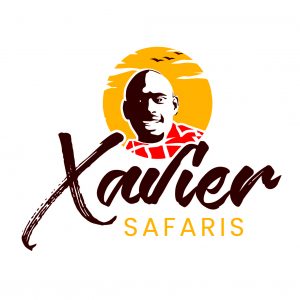
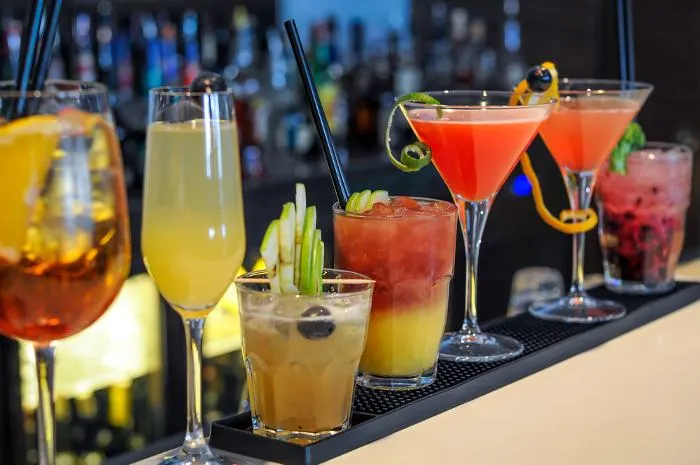
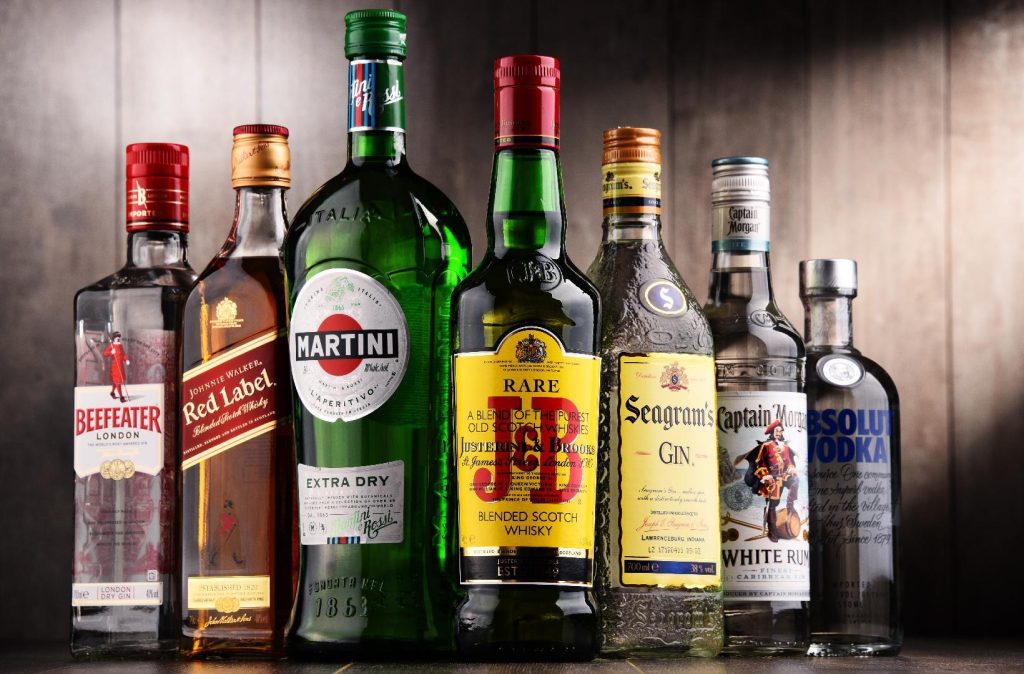
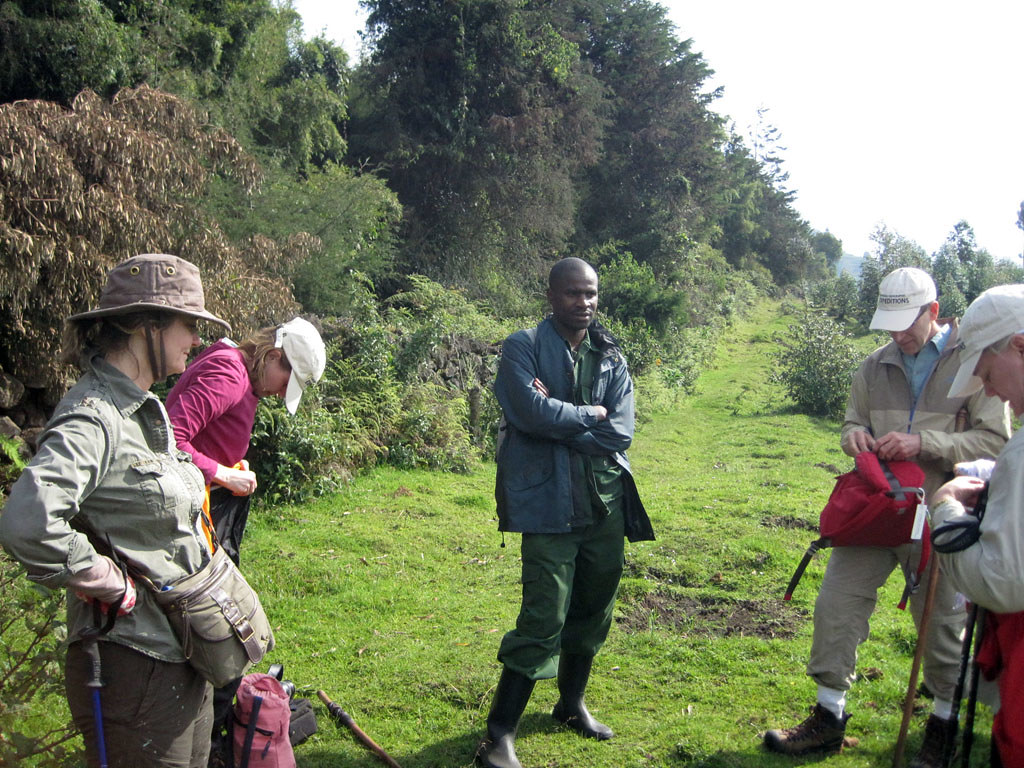
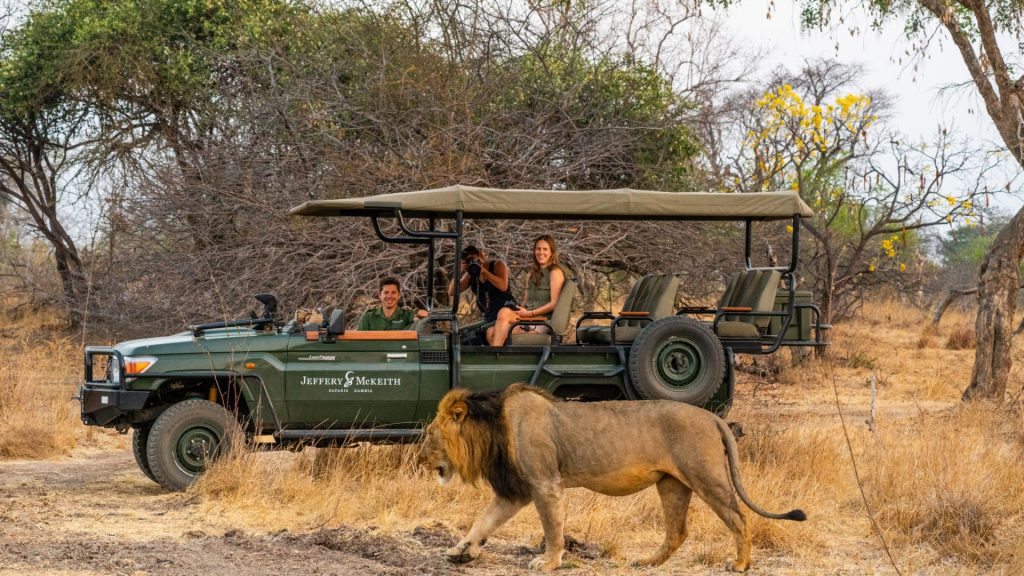
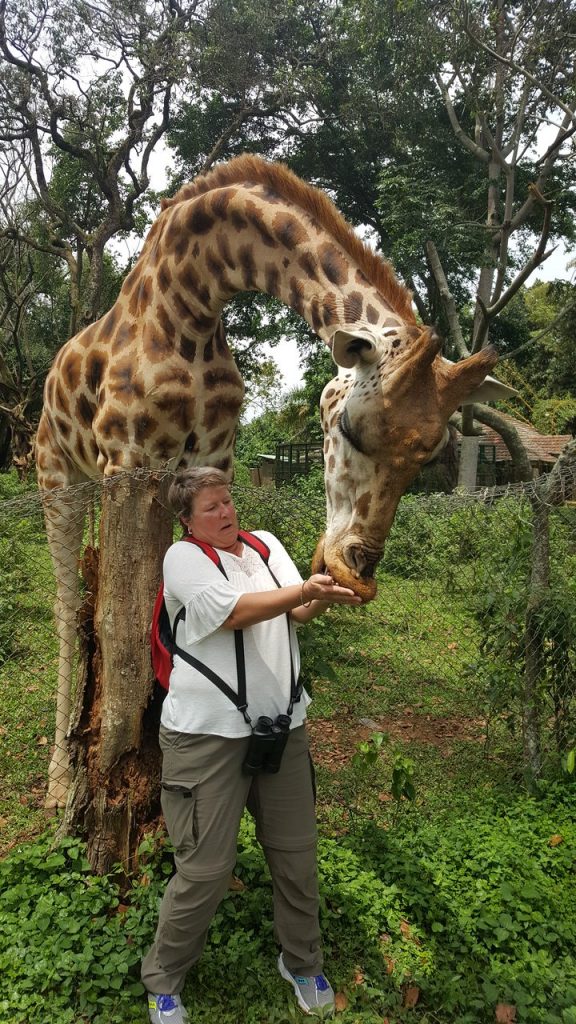
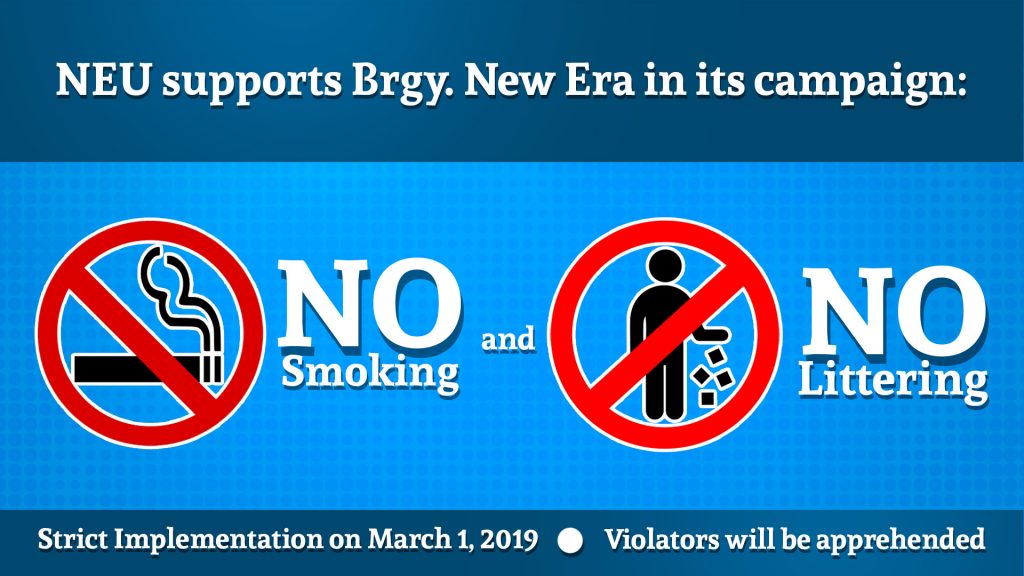


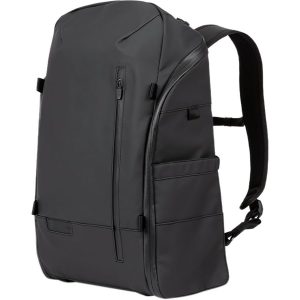
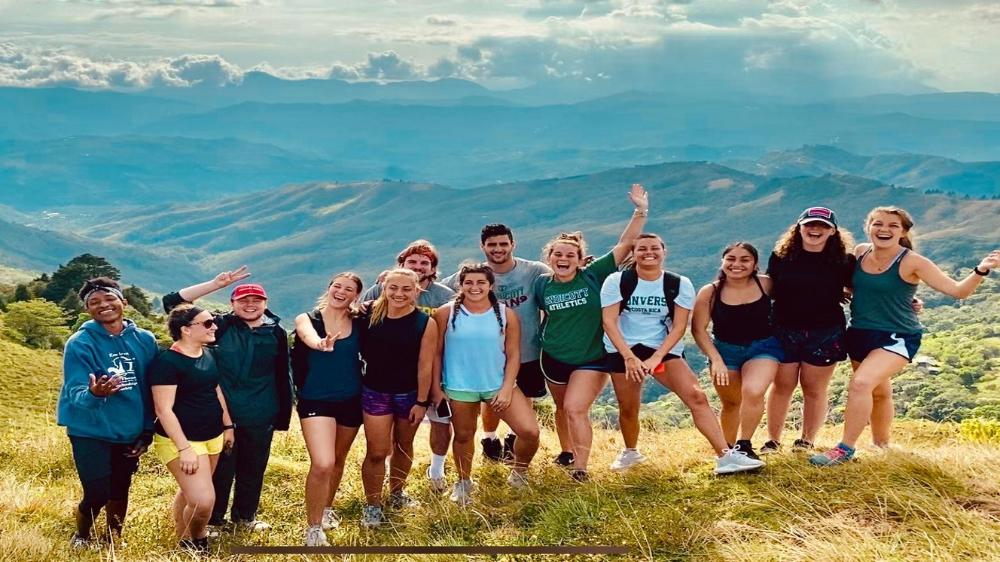

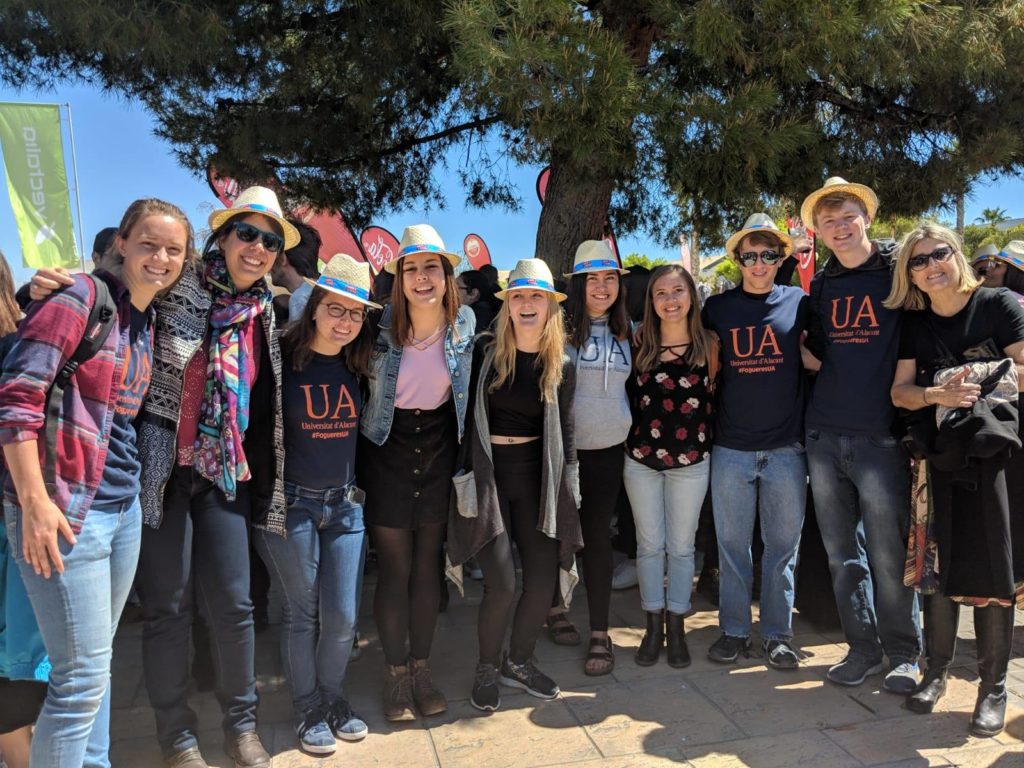
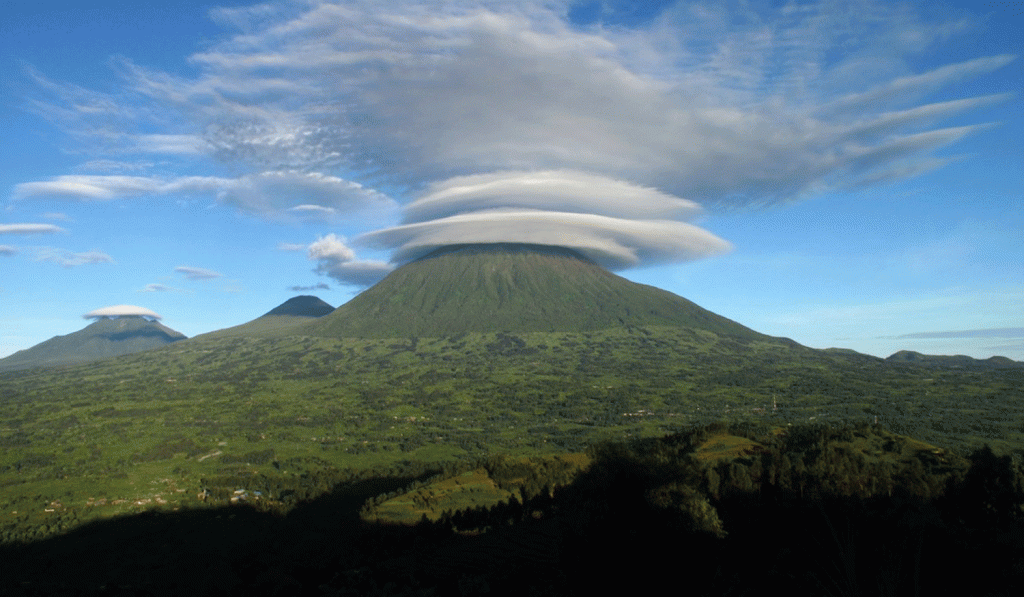
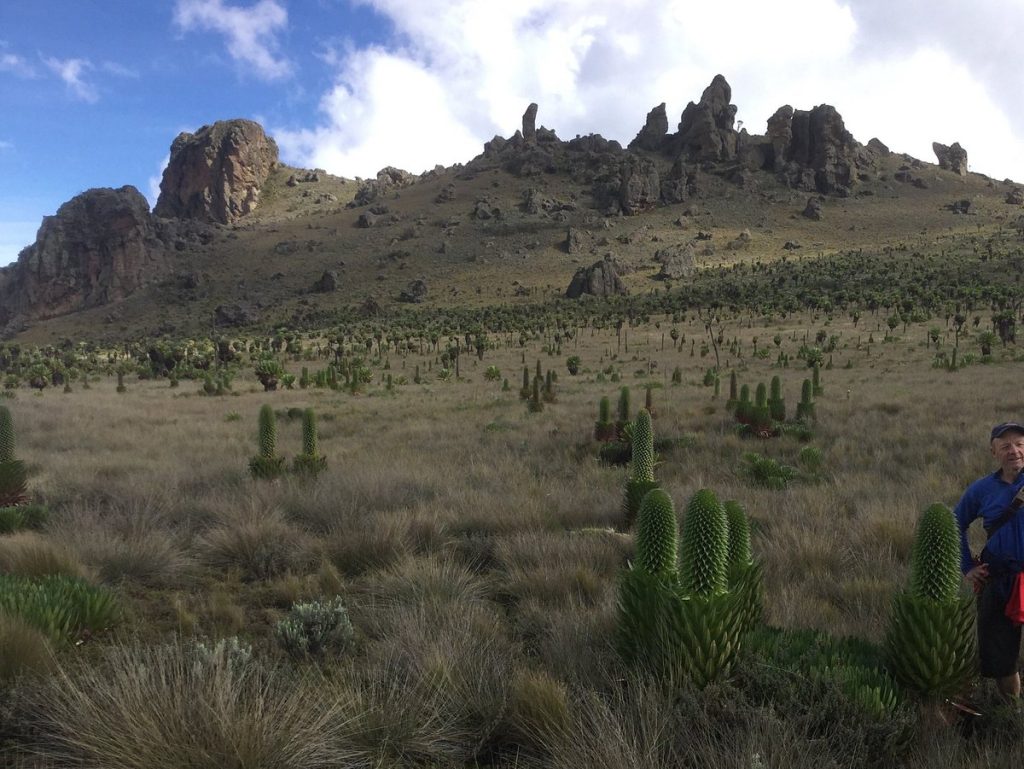
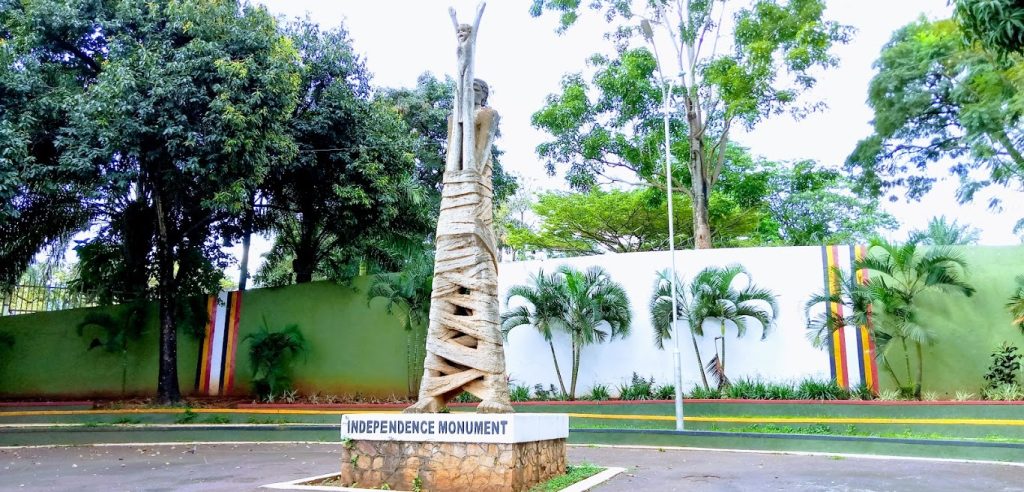
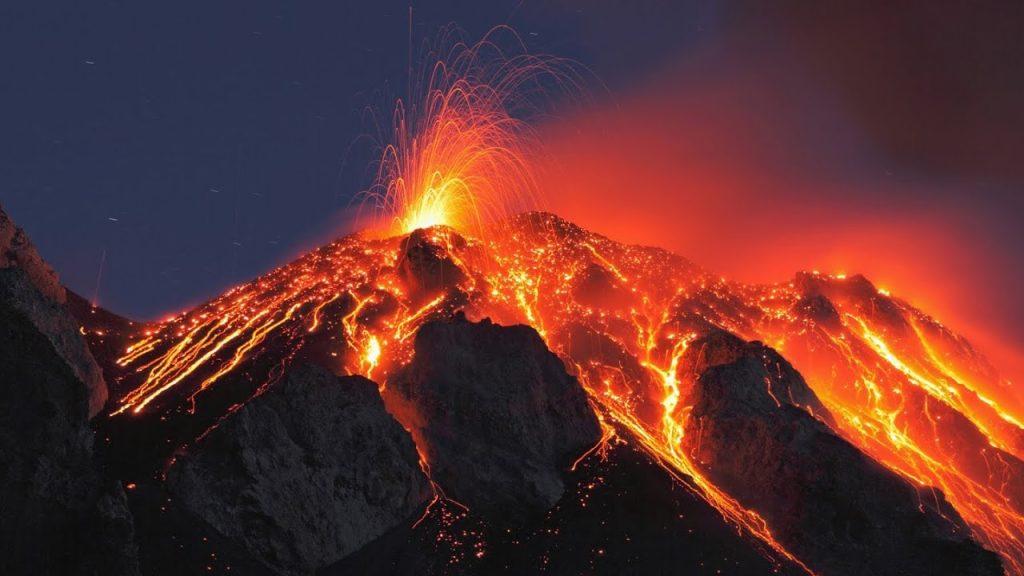
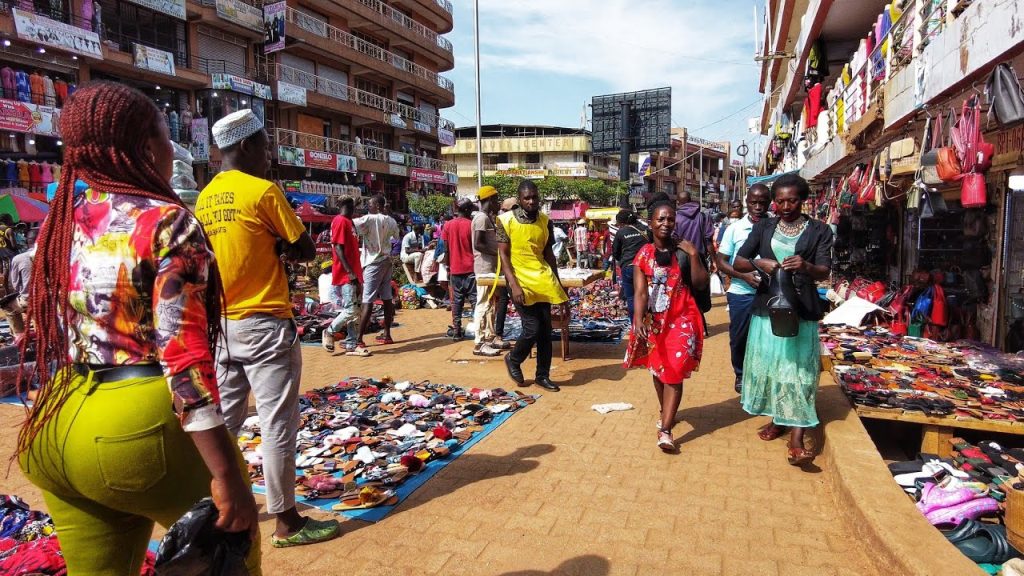
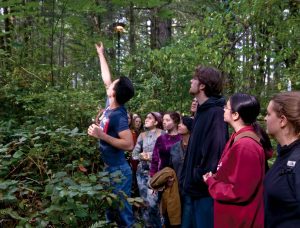
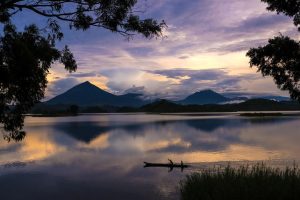
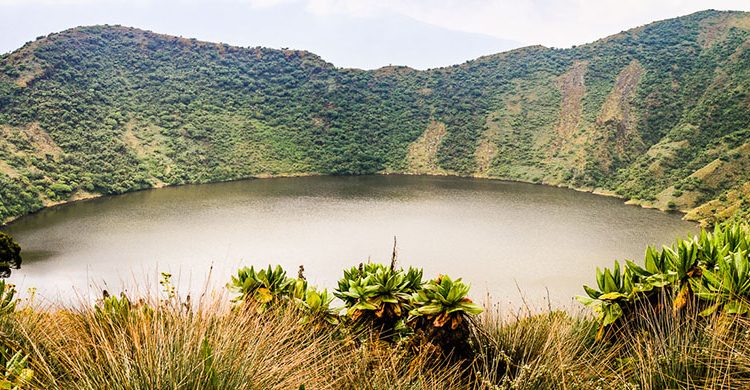
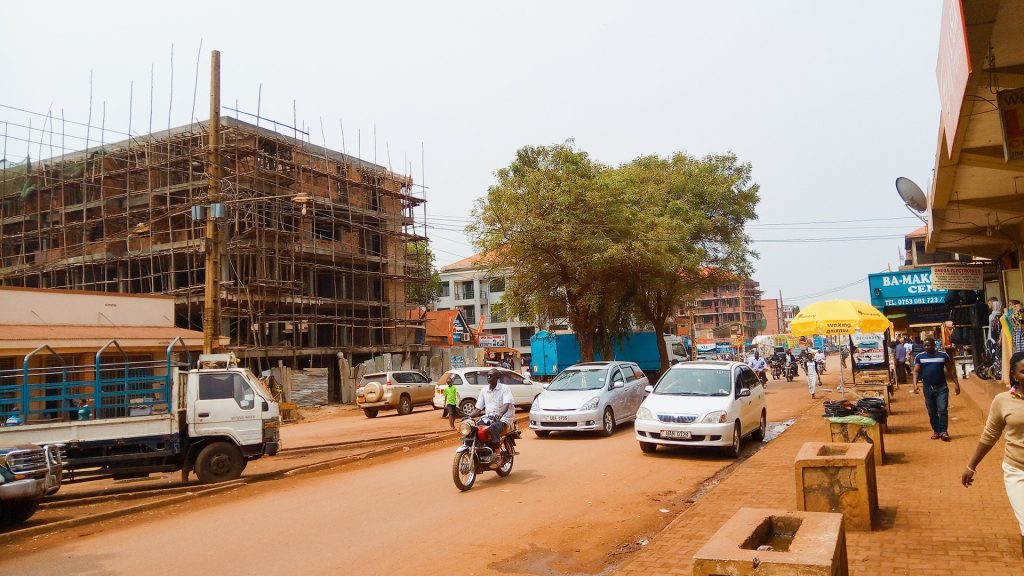
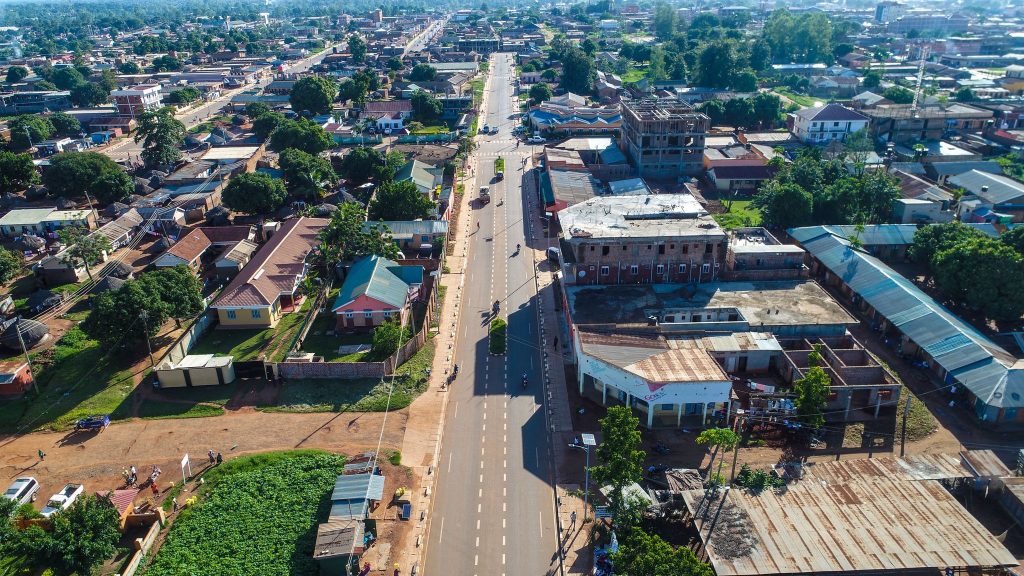
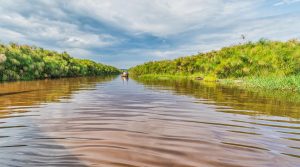
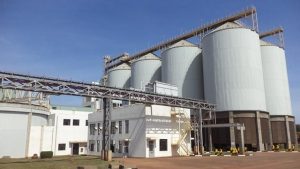
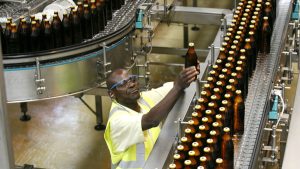
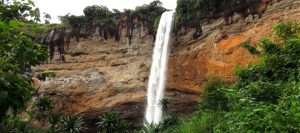
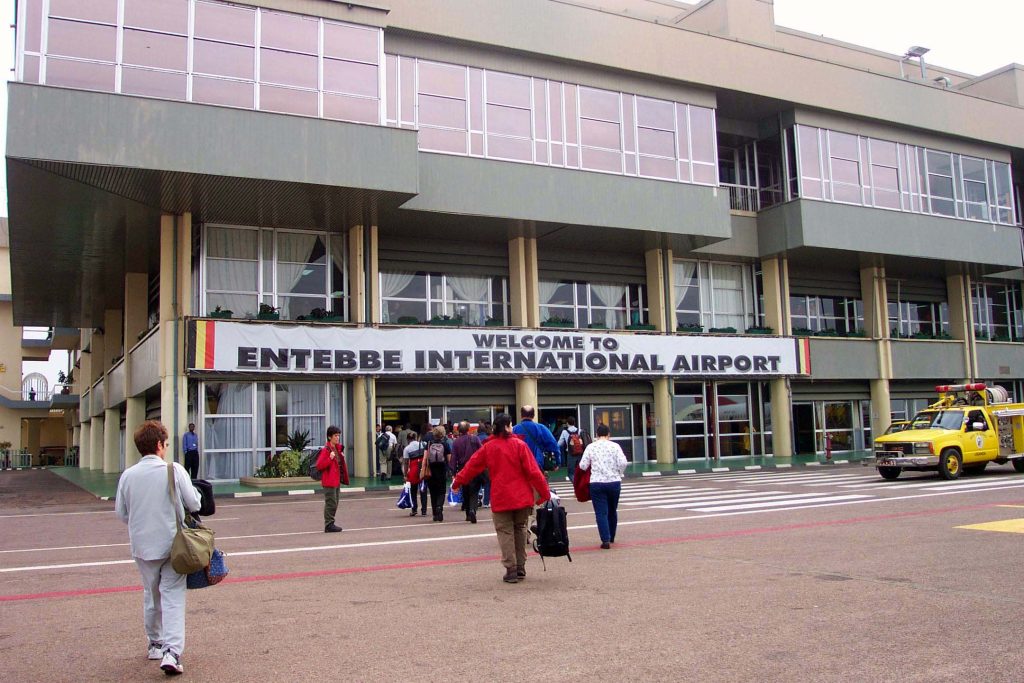
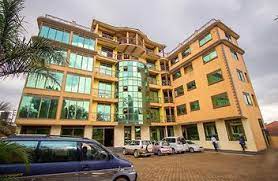
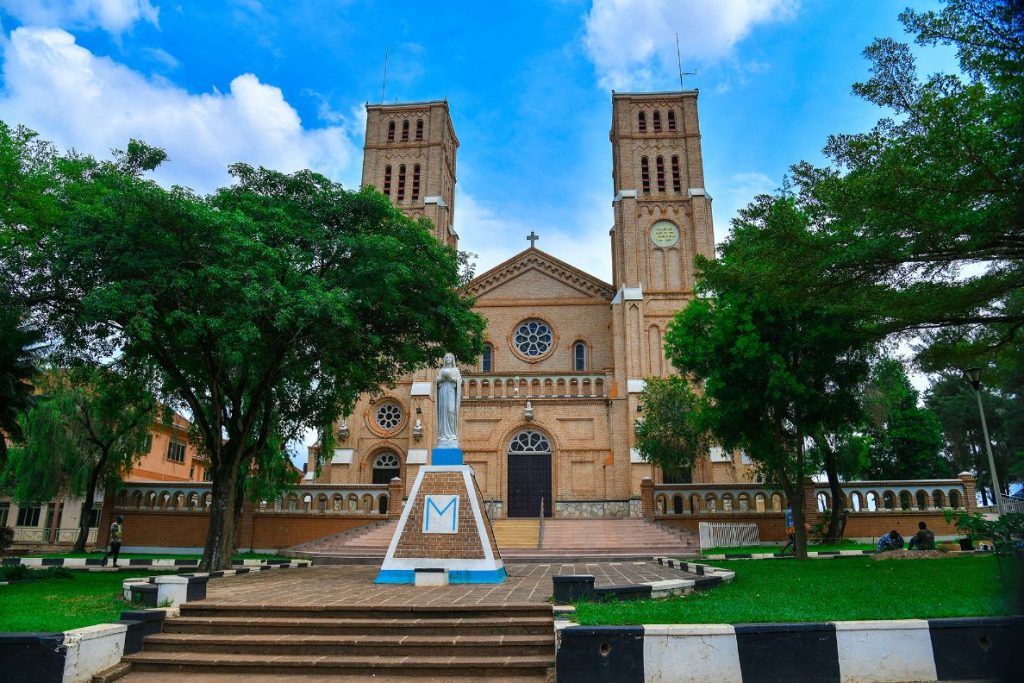
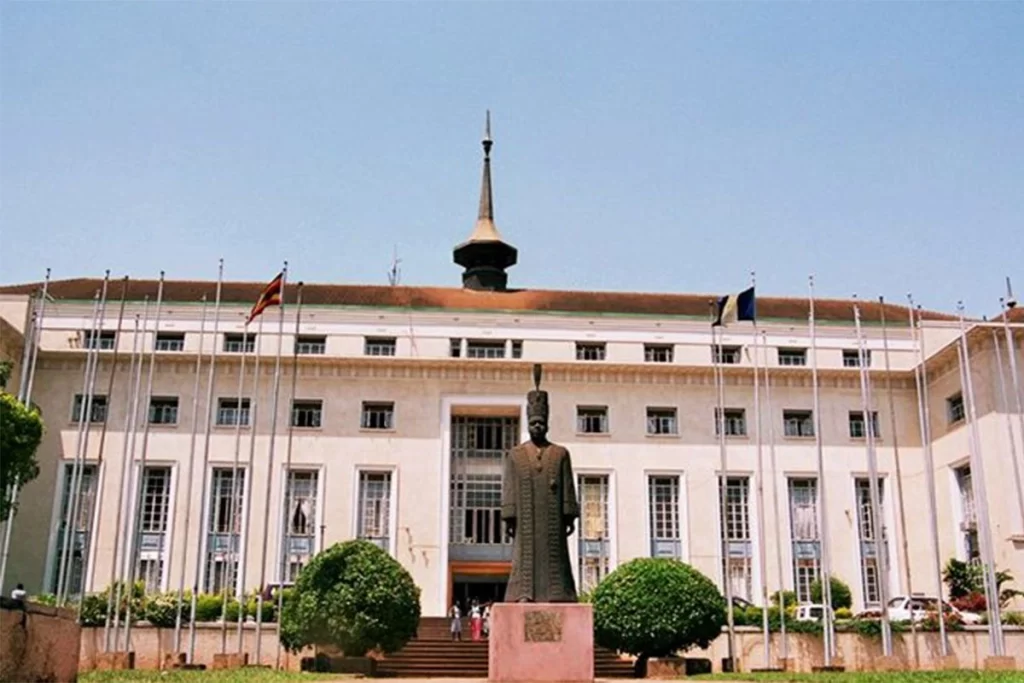
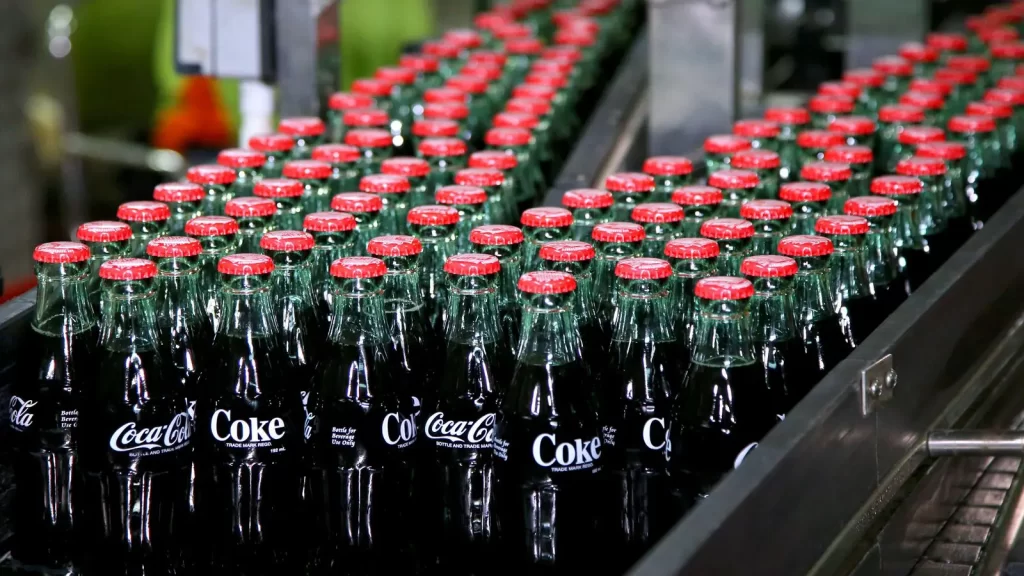
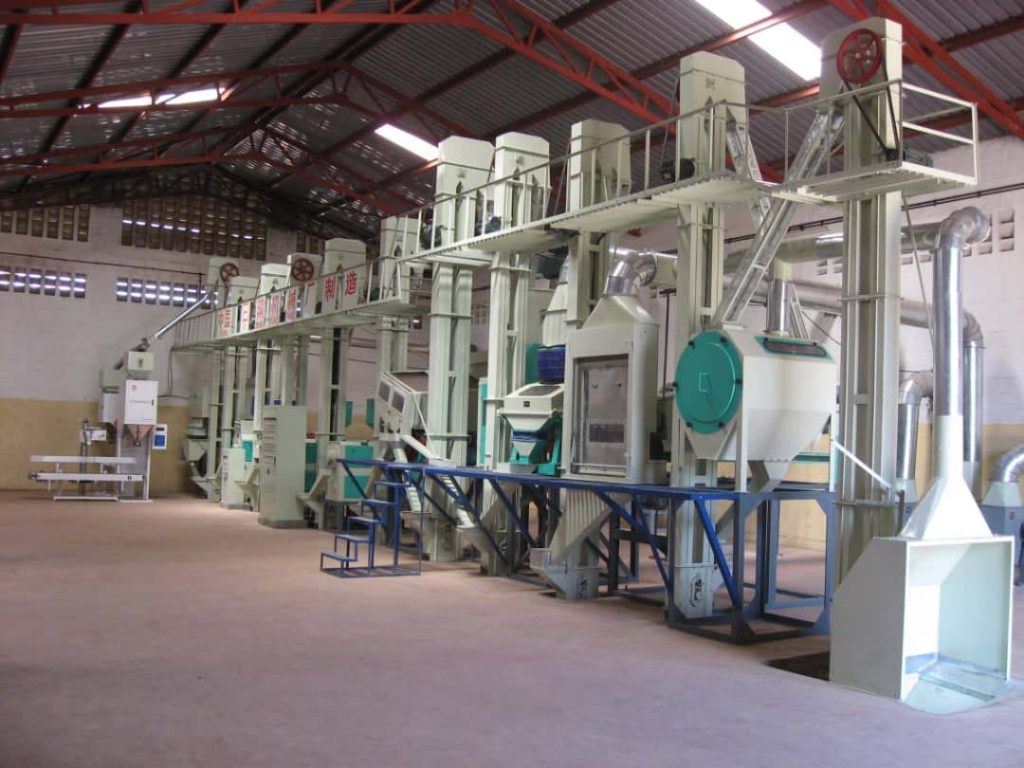
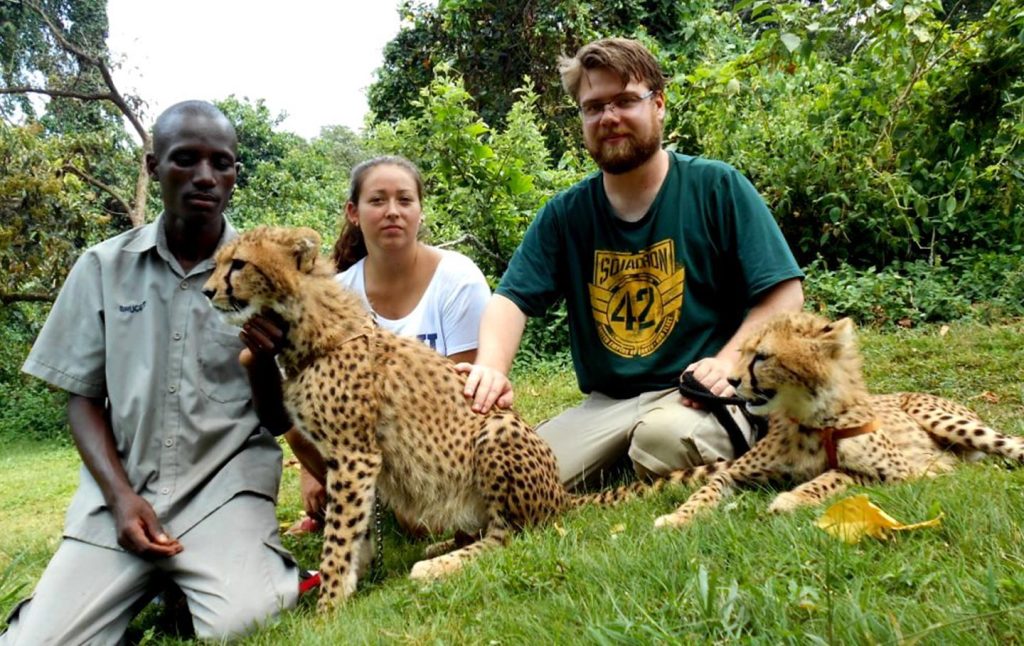
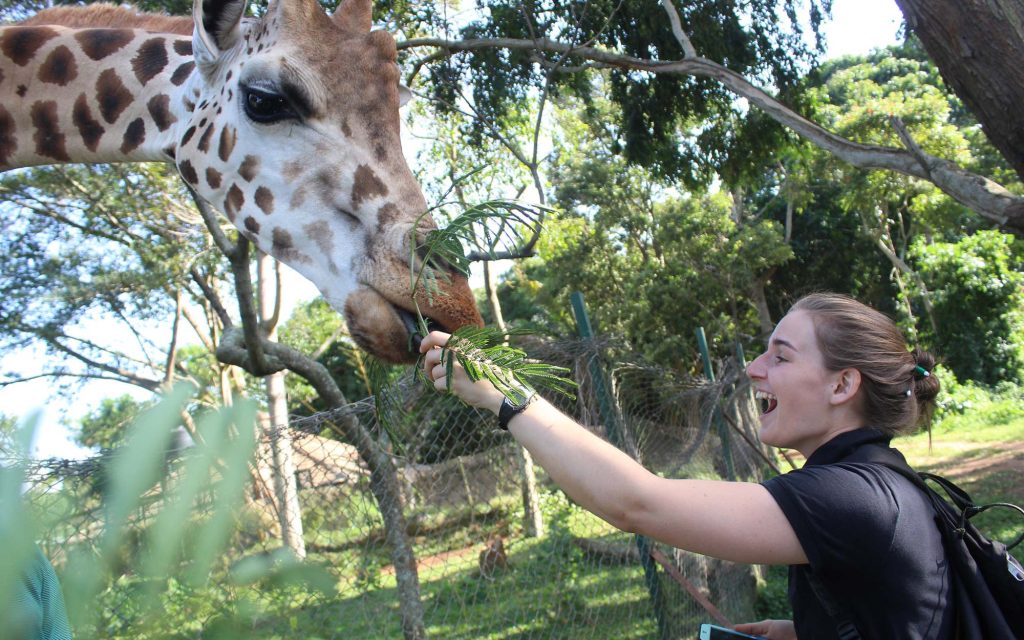
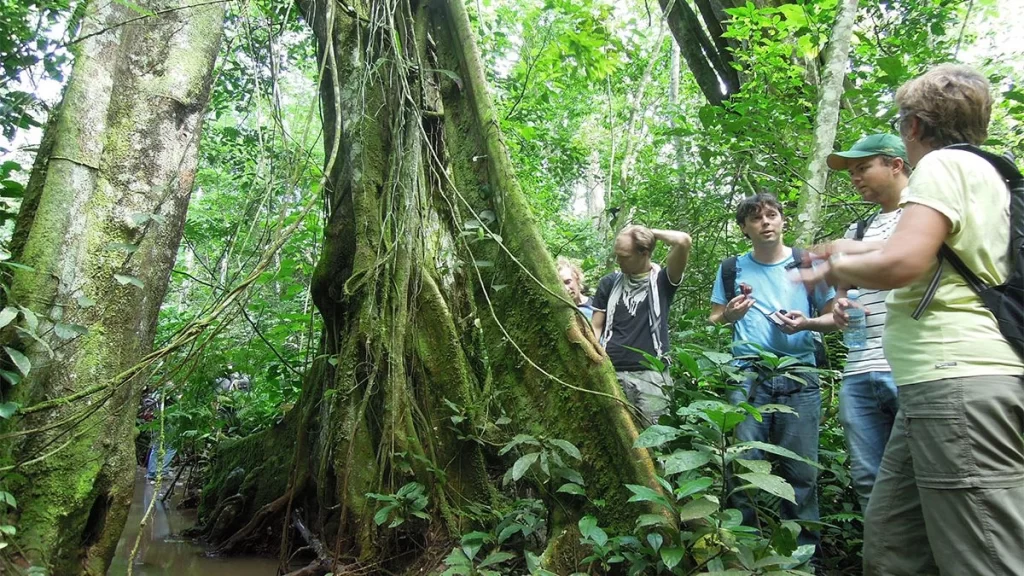
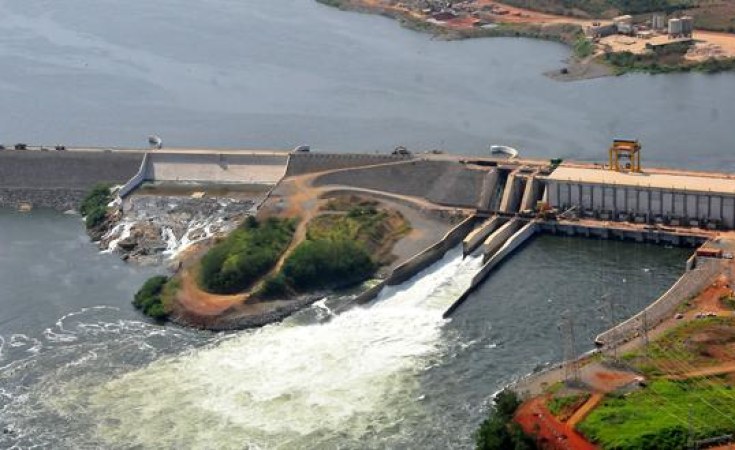
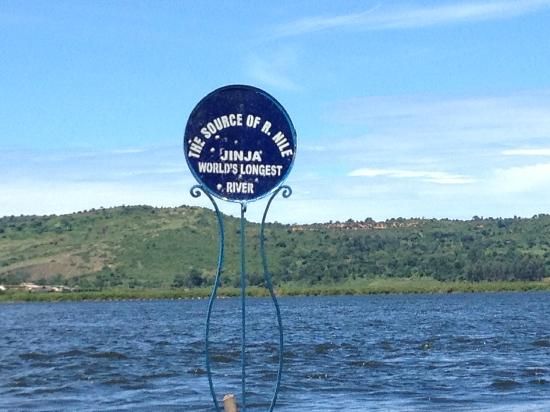
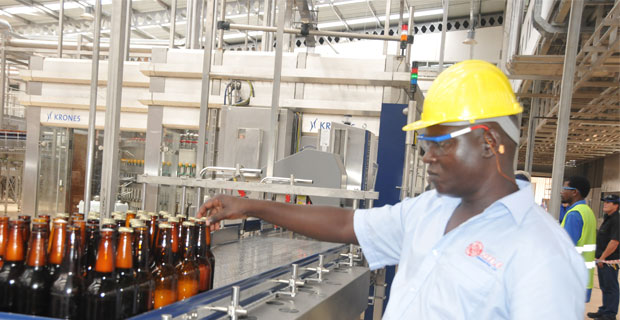
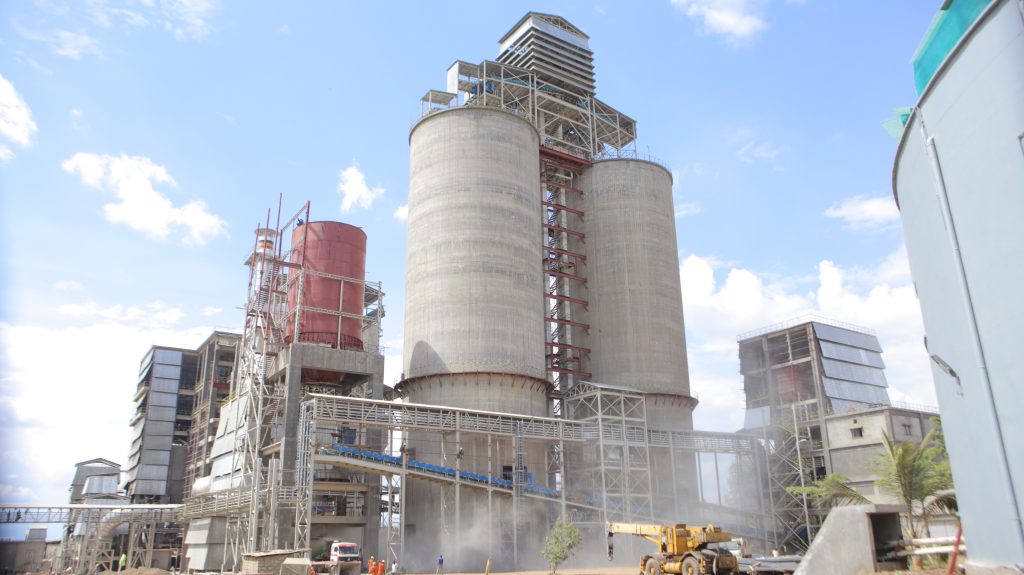
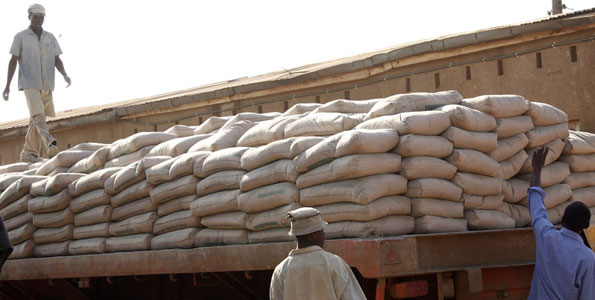
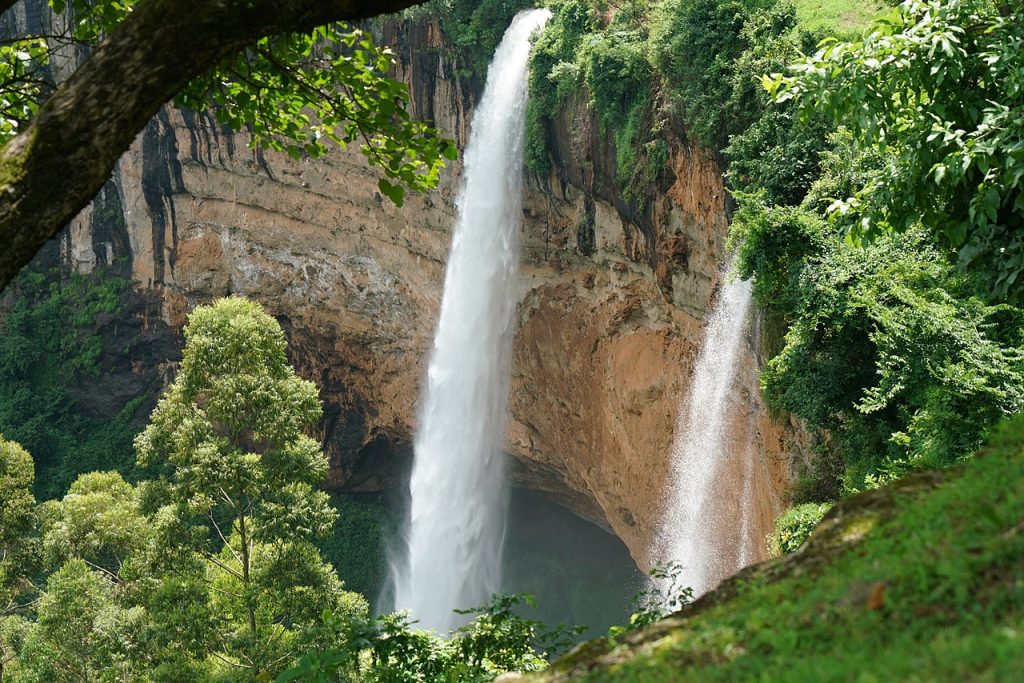
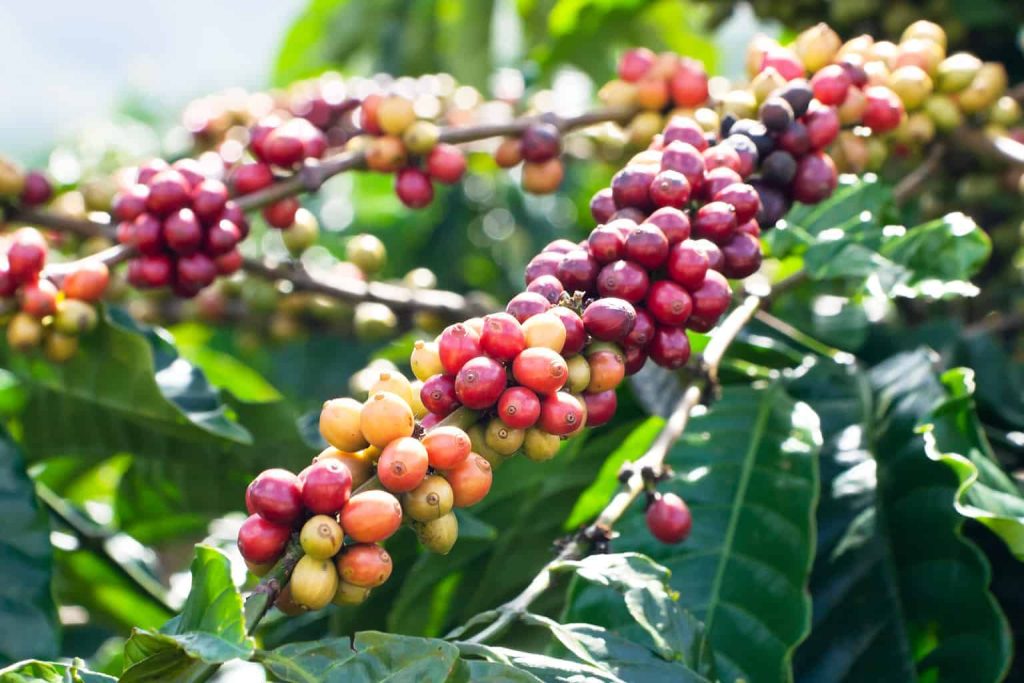
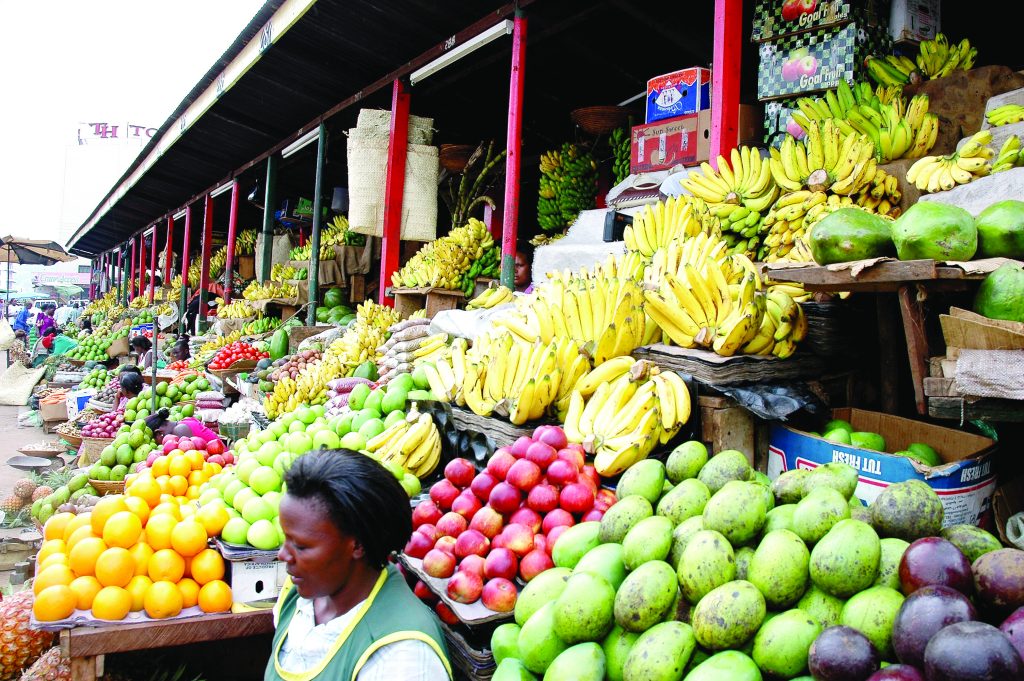
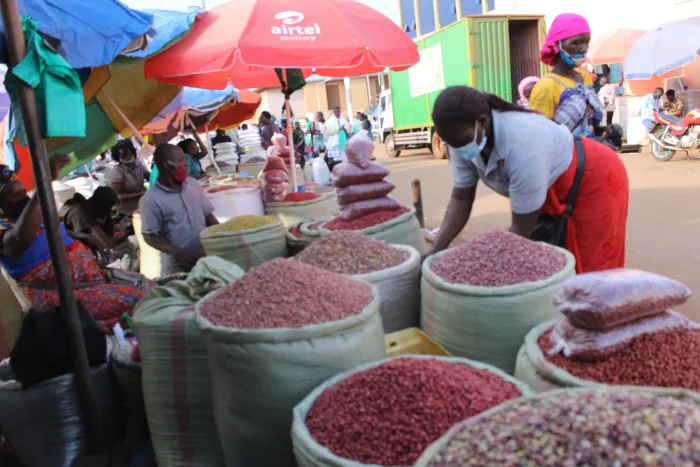
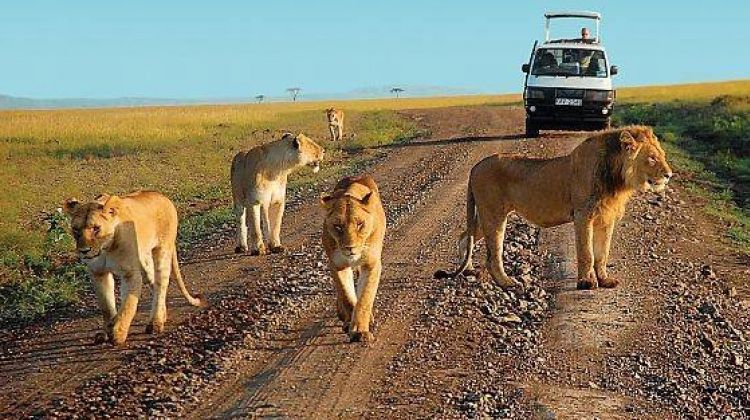
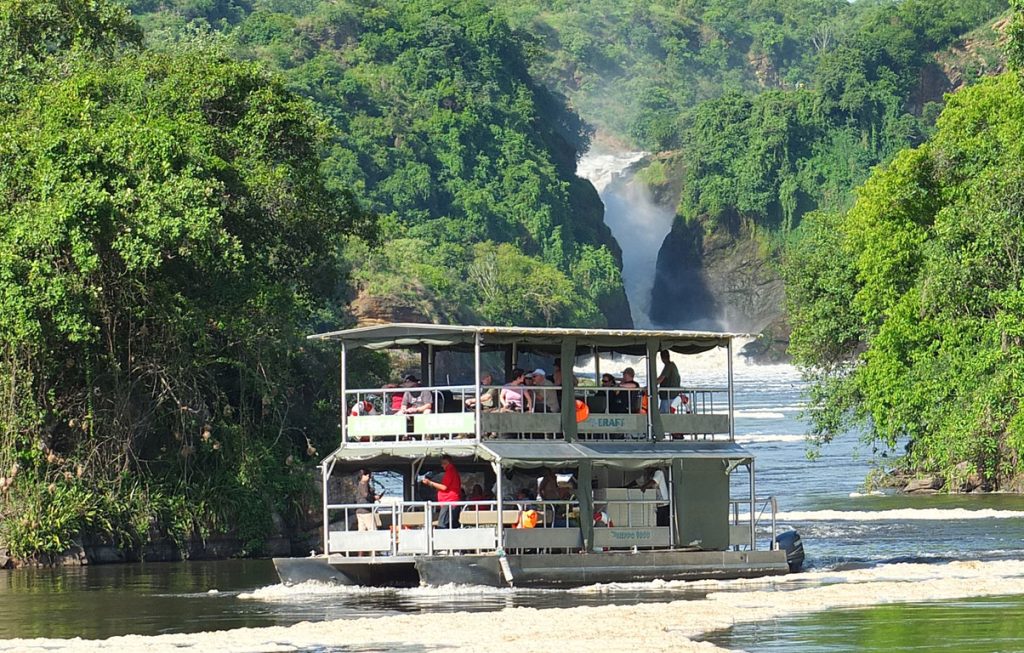
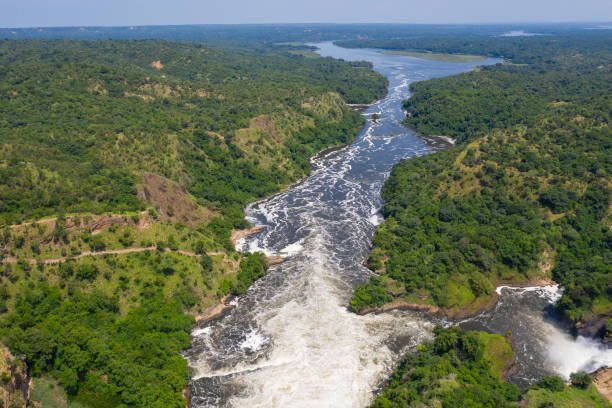
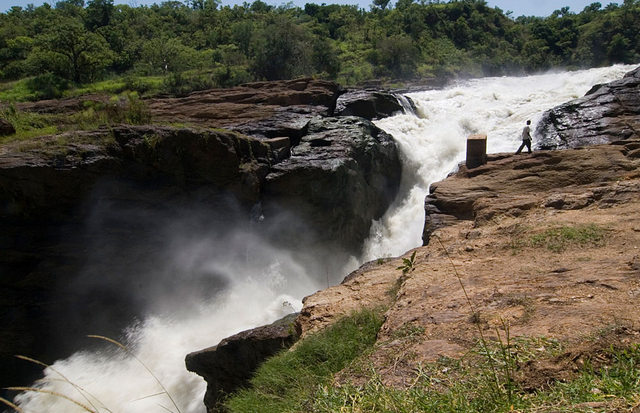
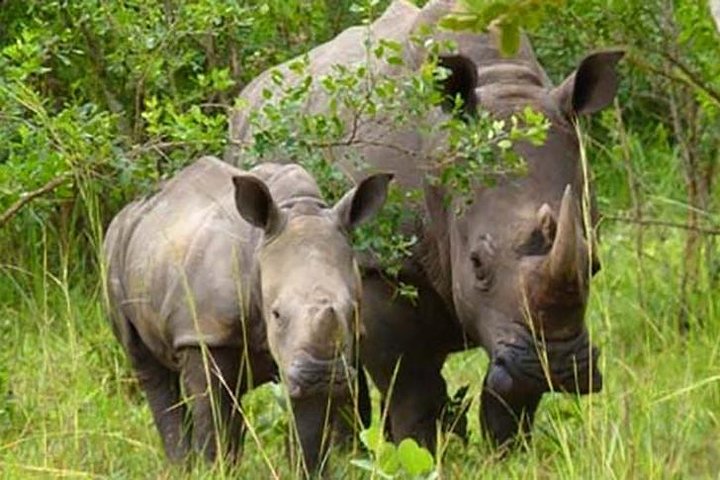
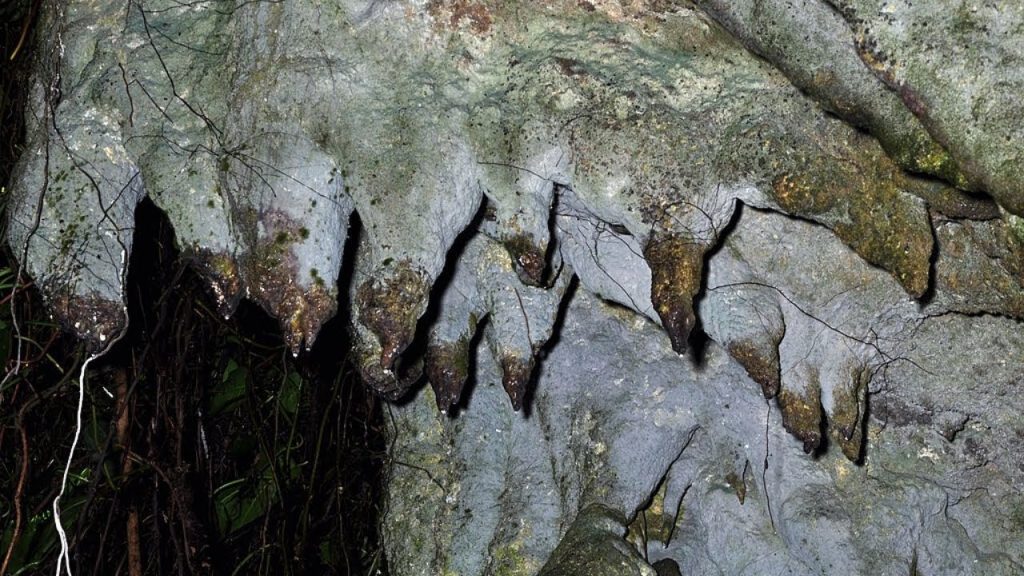
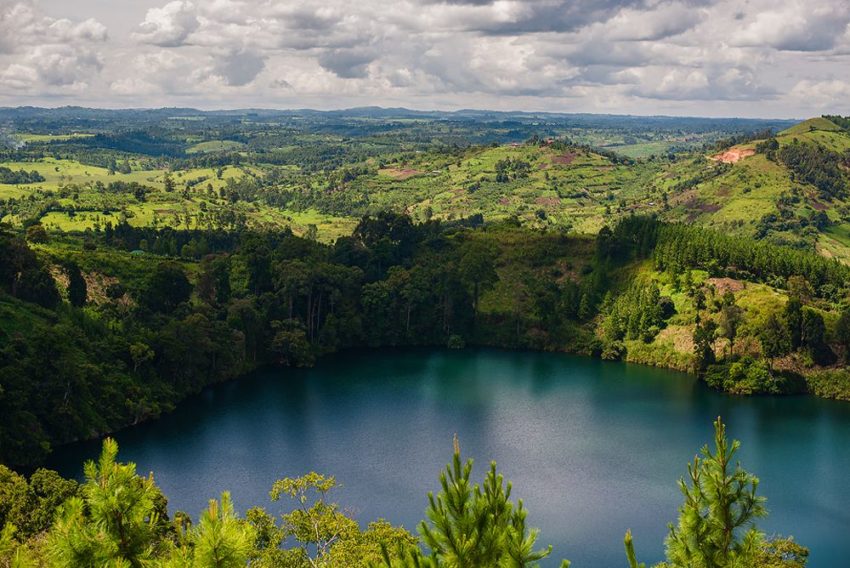
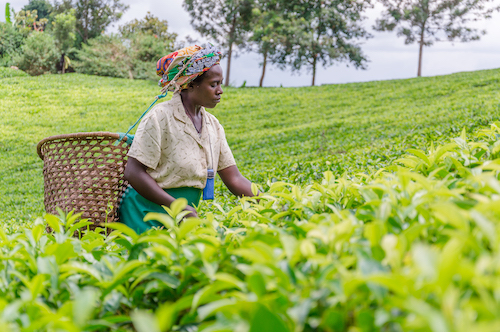
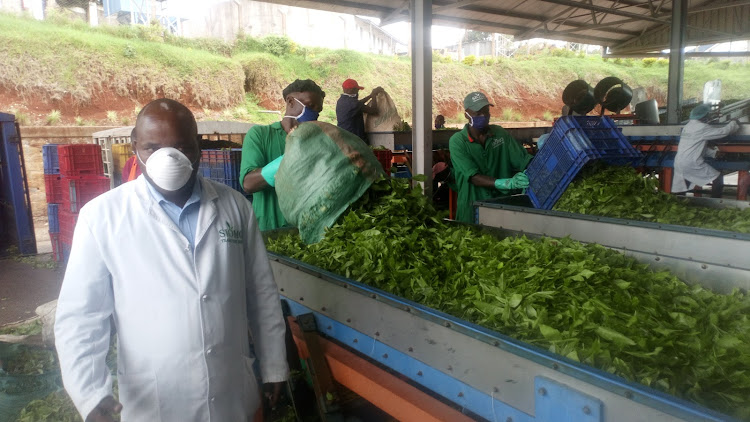
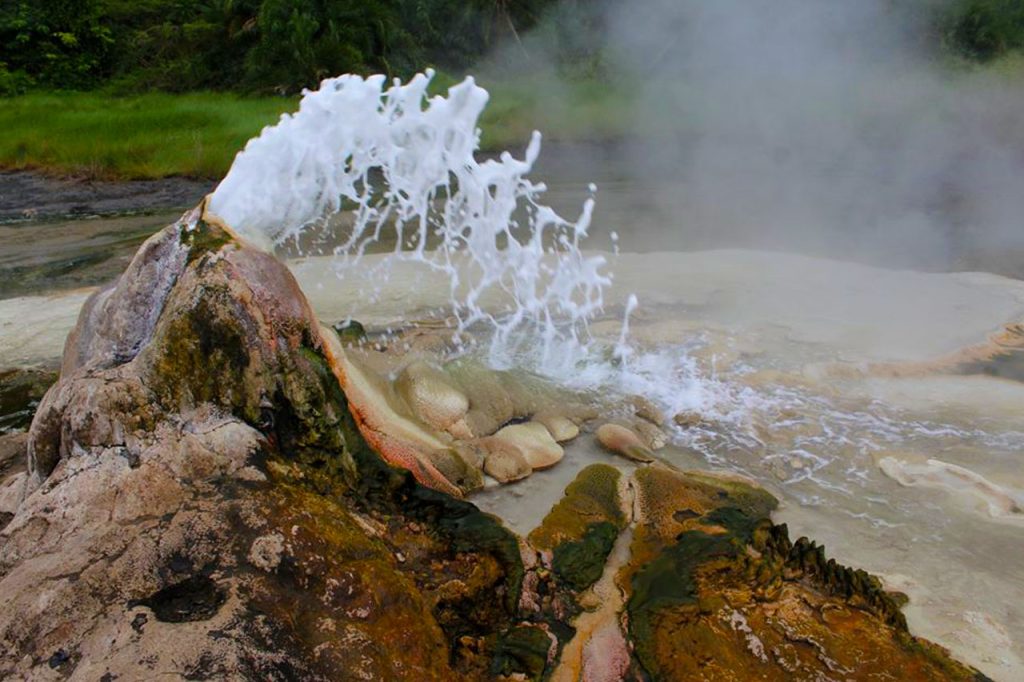
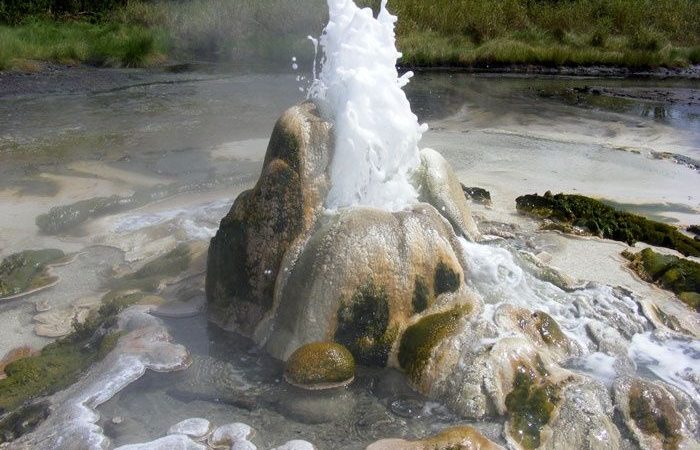
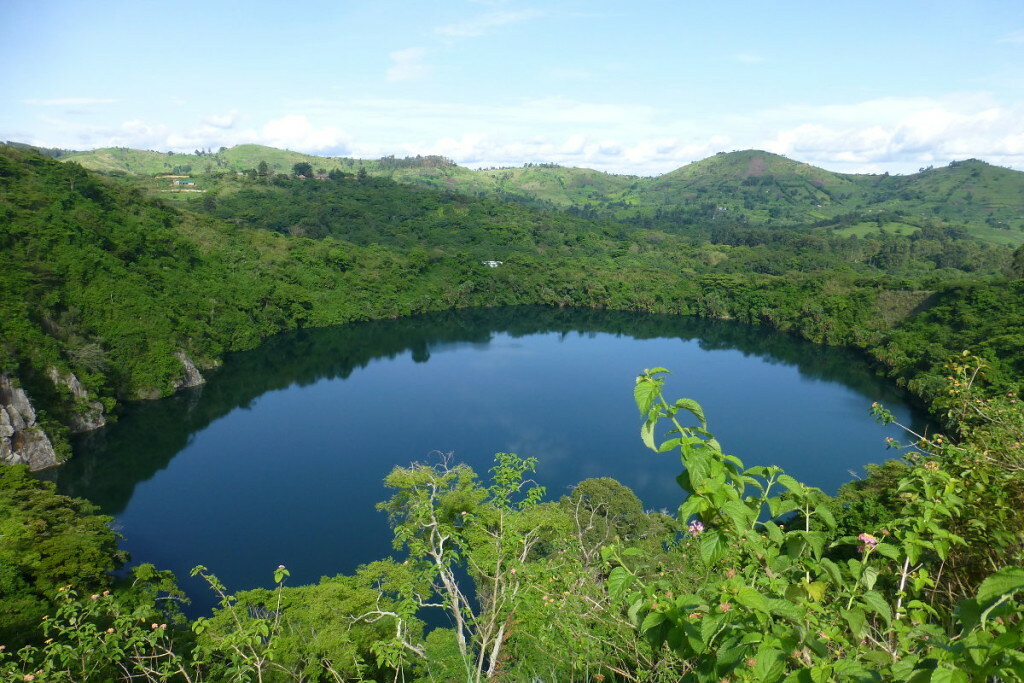
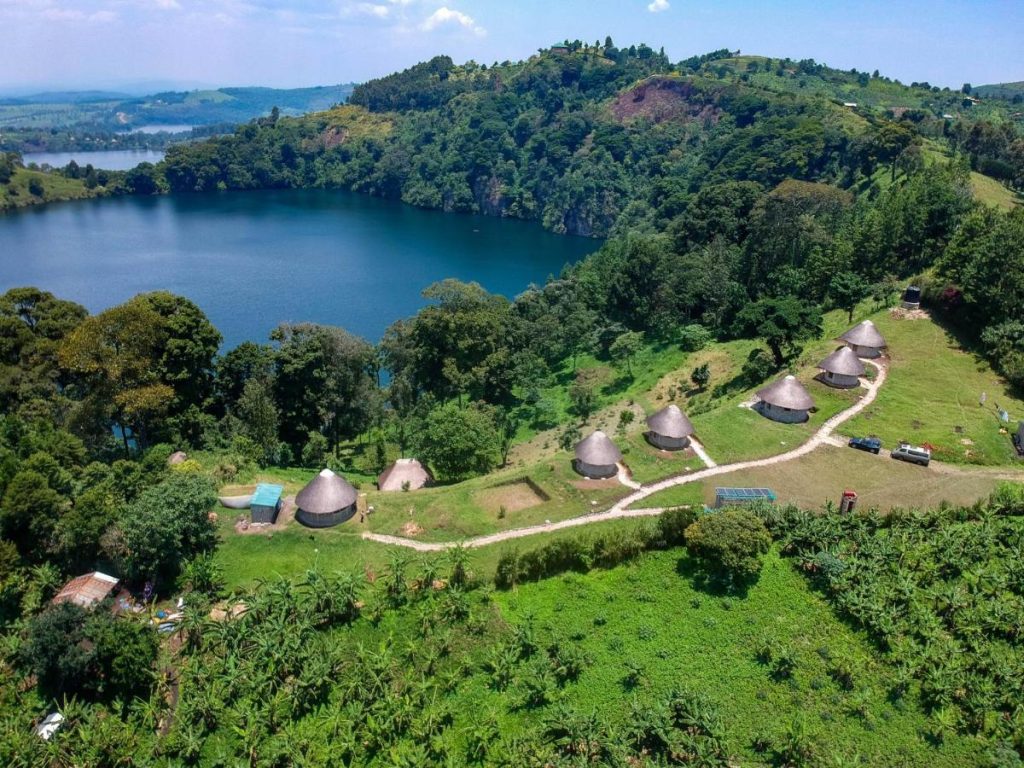
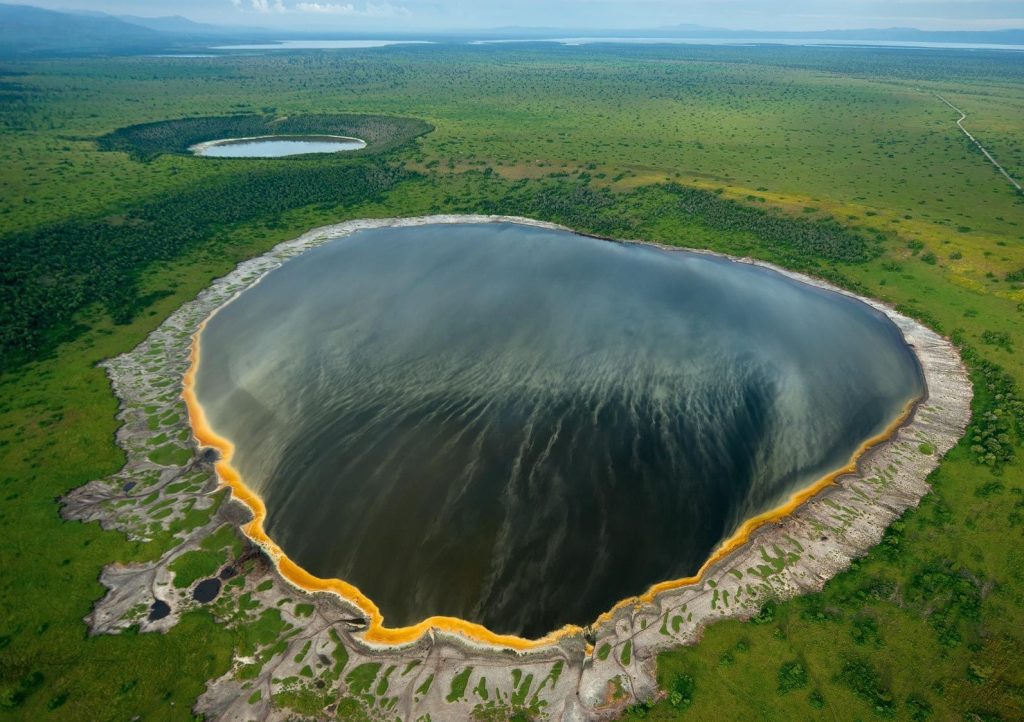
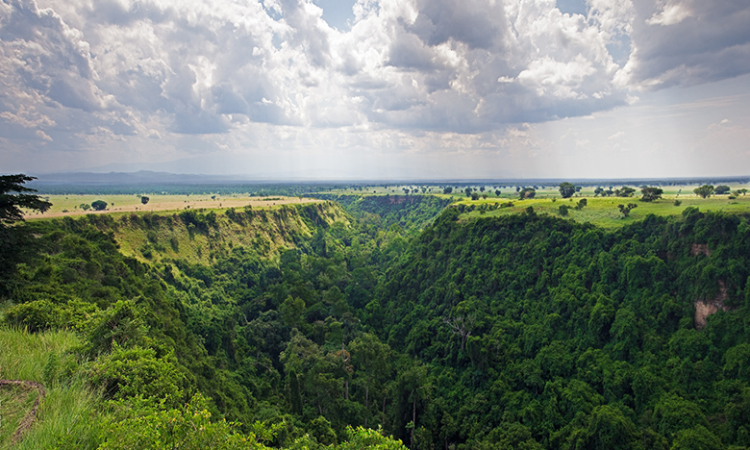
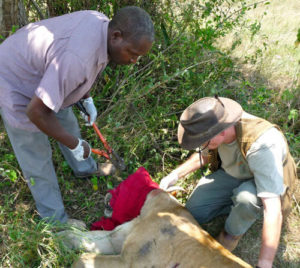
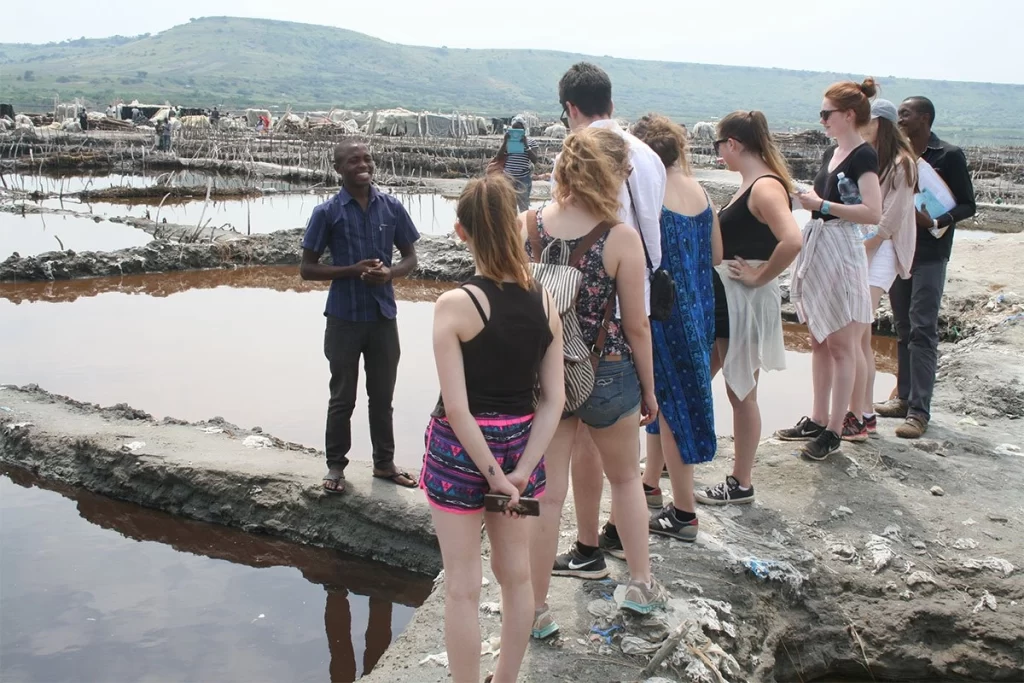
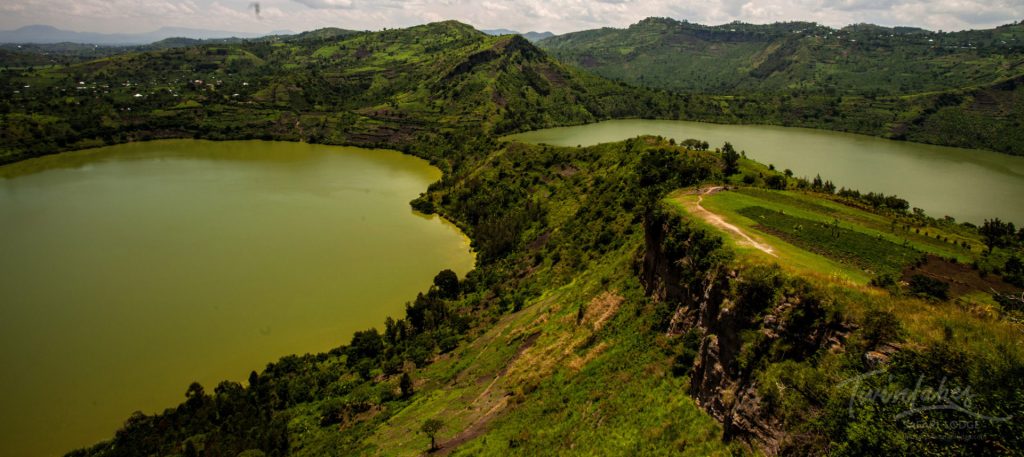
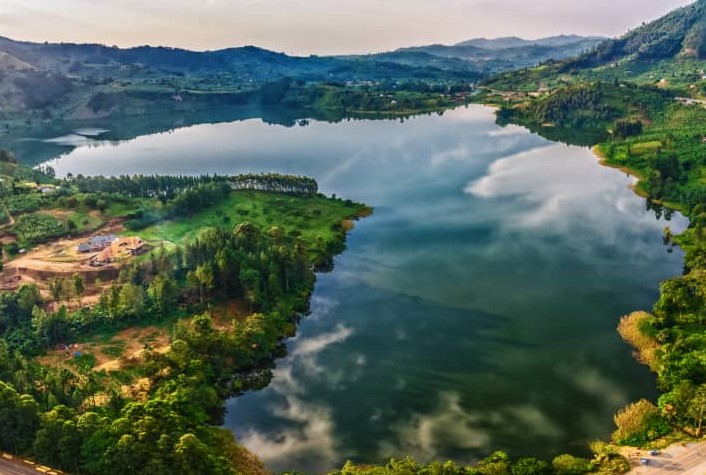
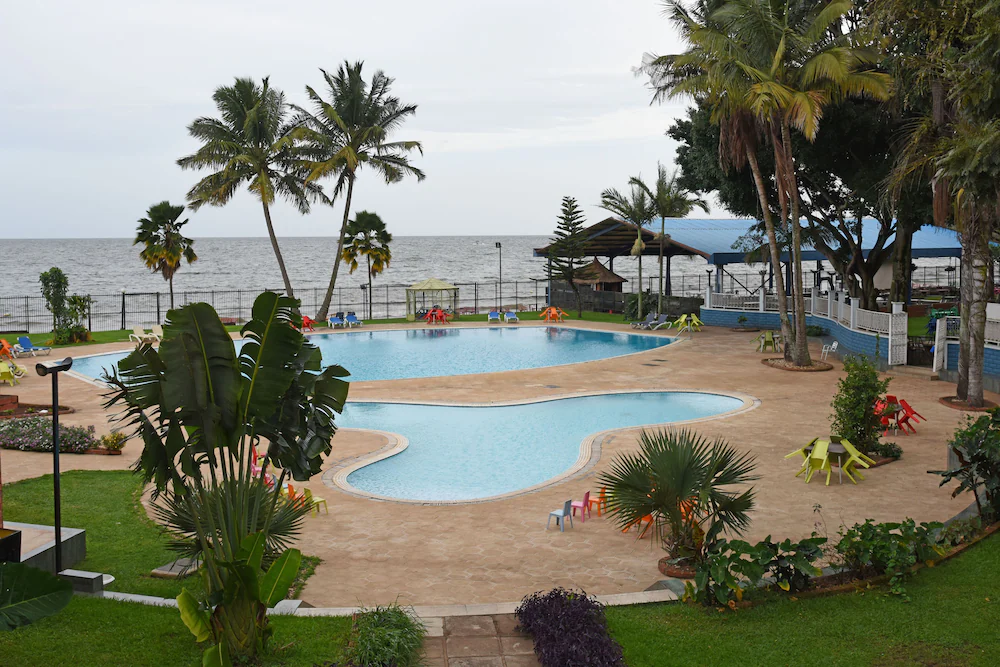
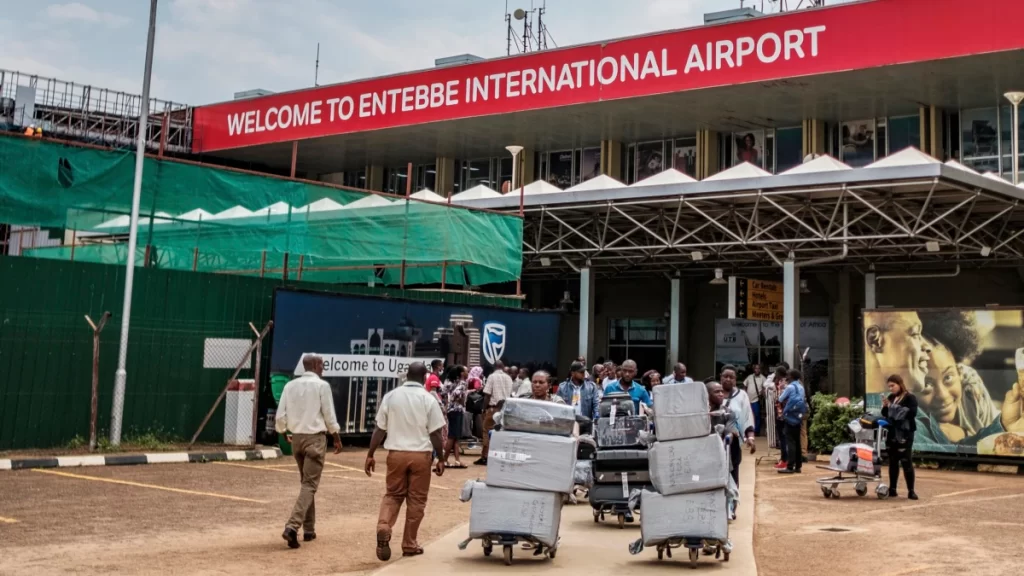
There are no reviews yet.